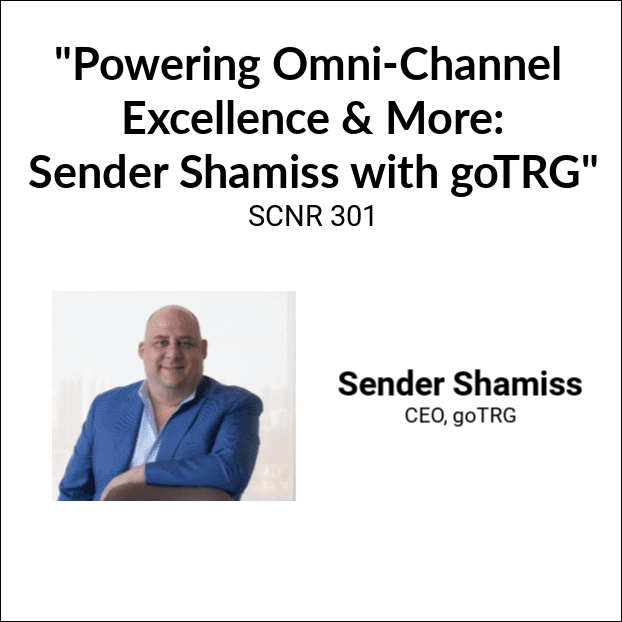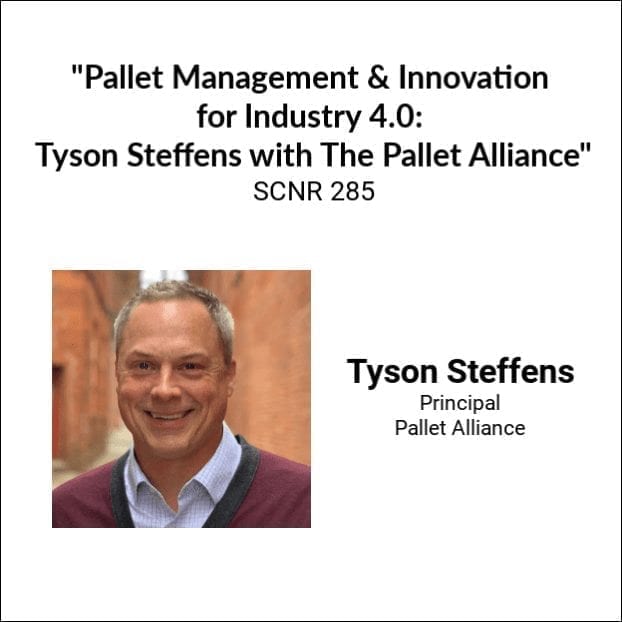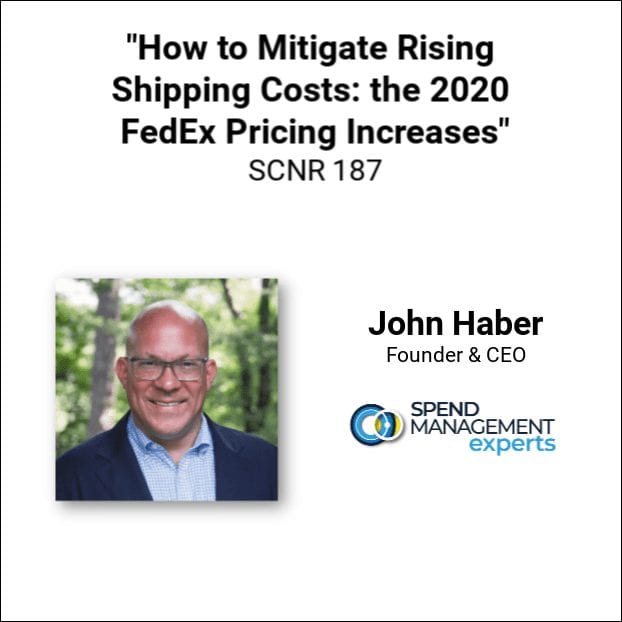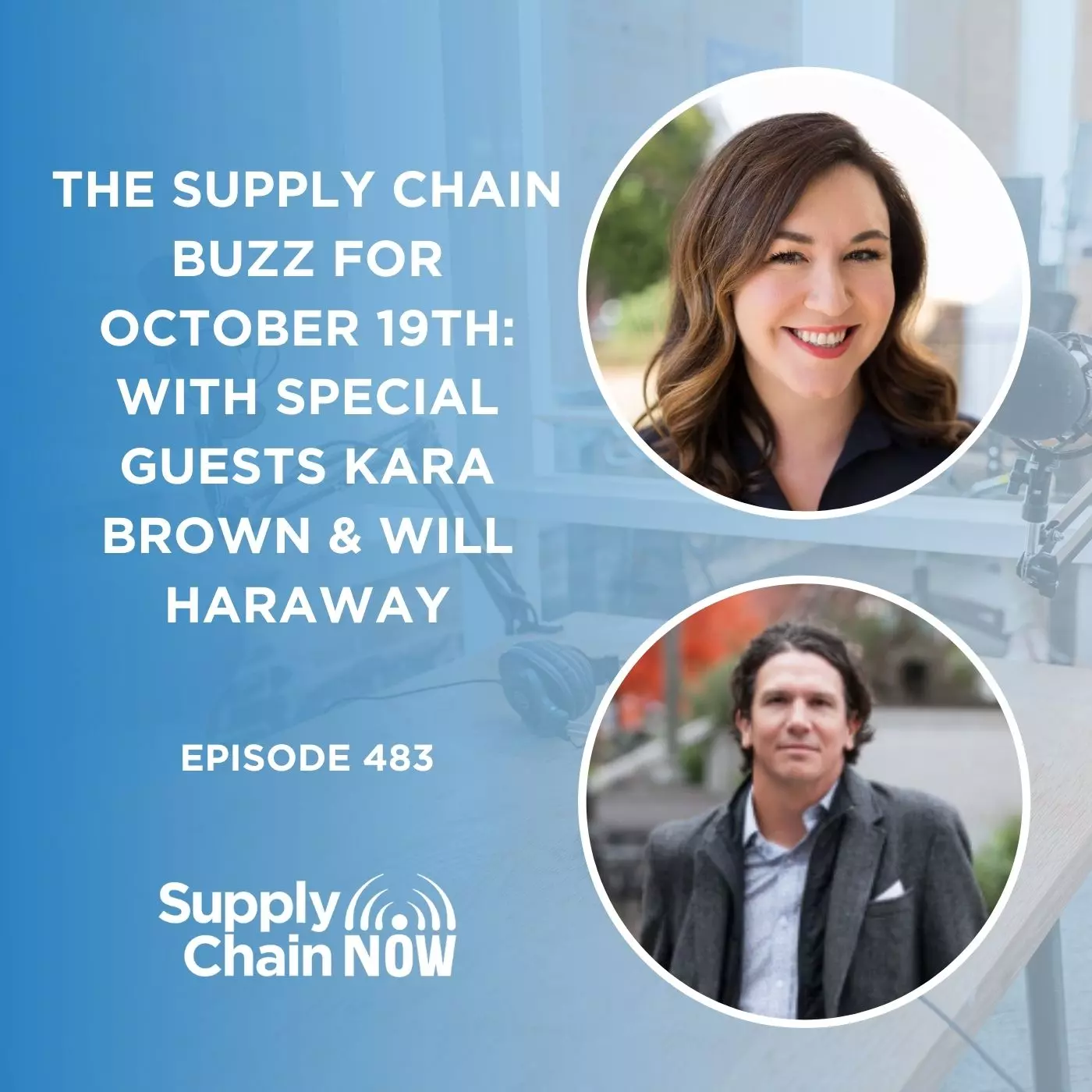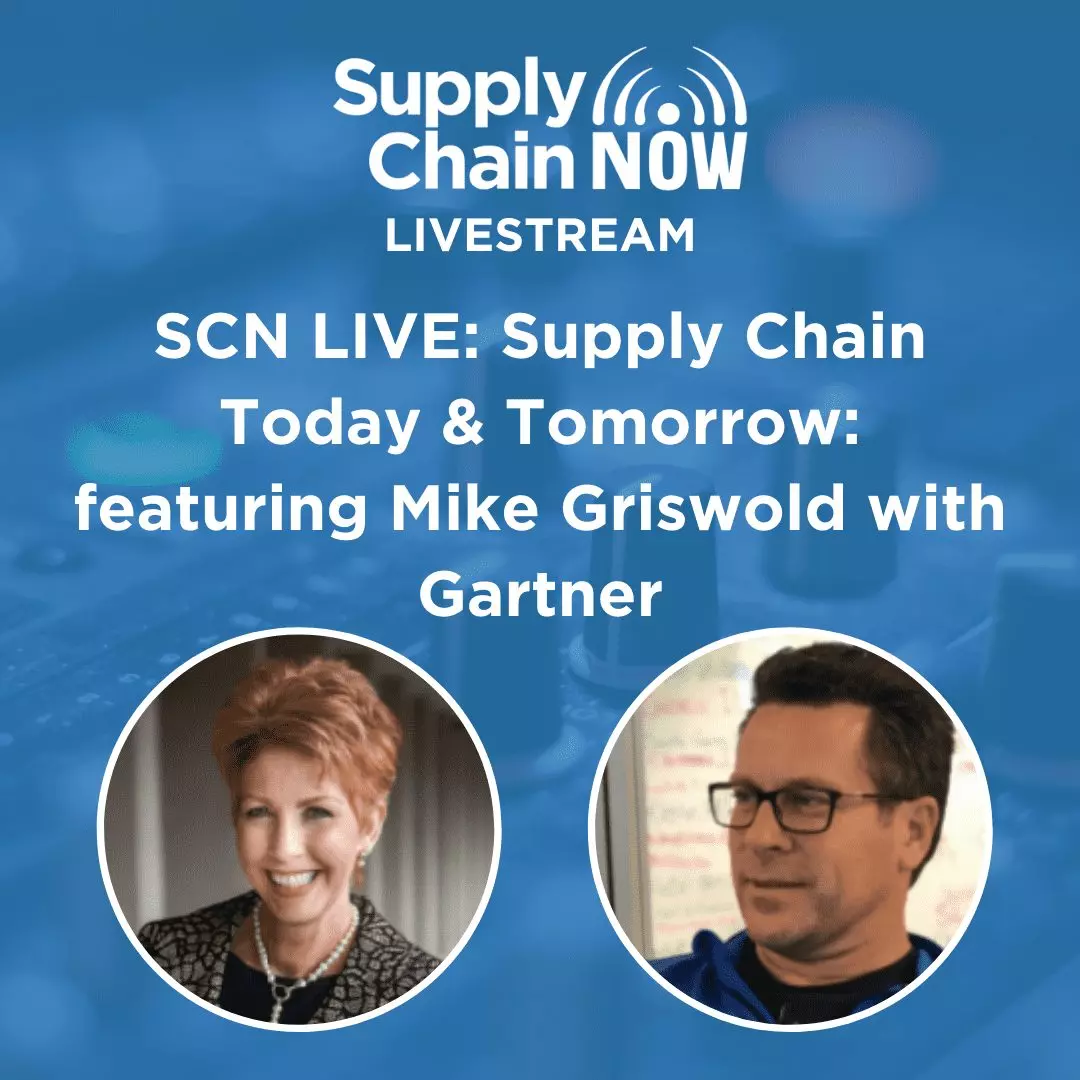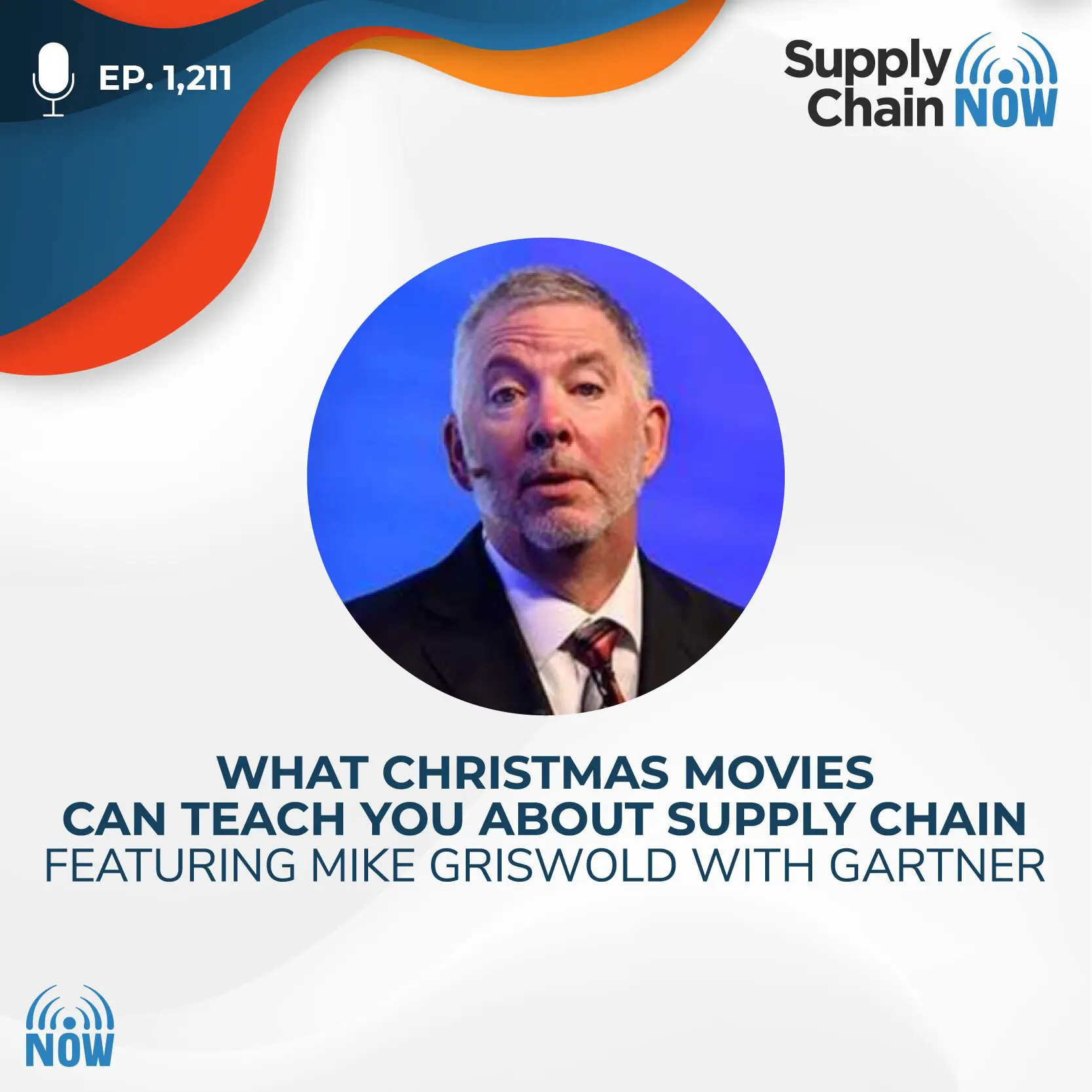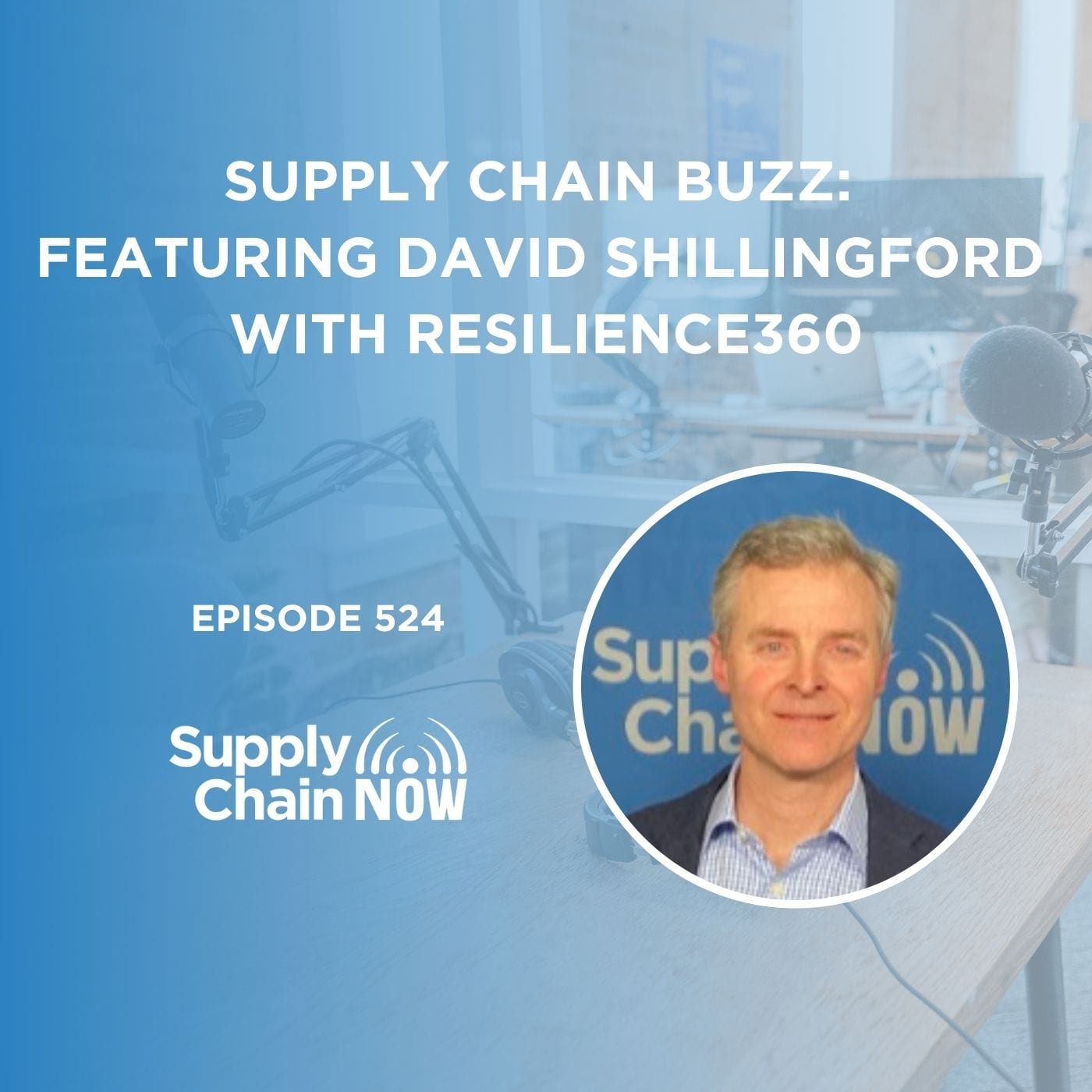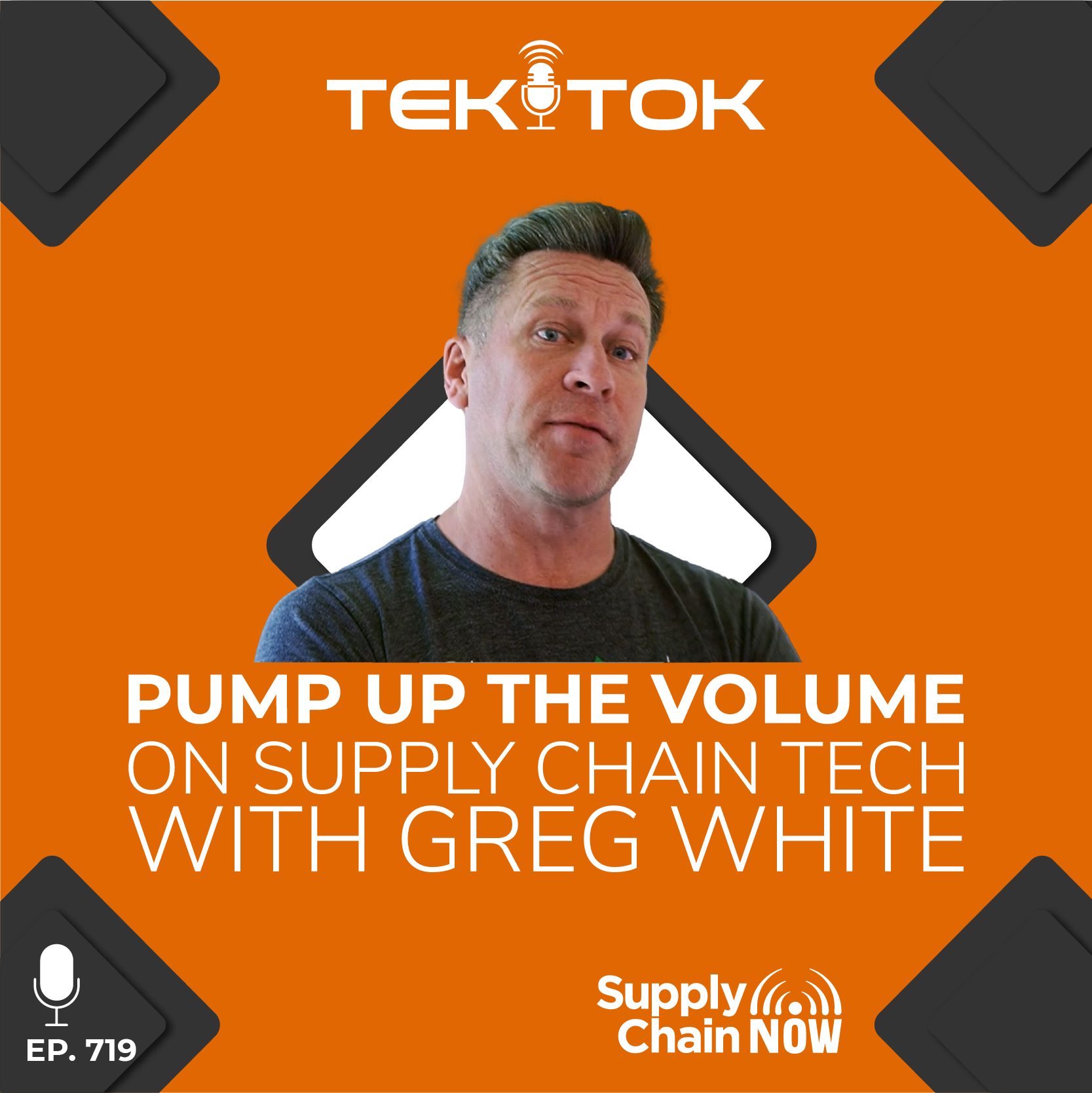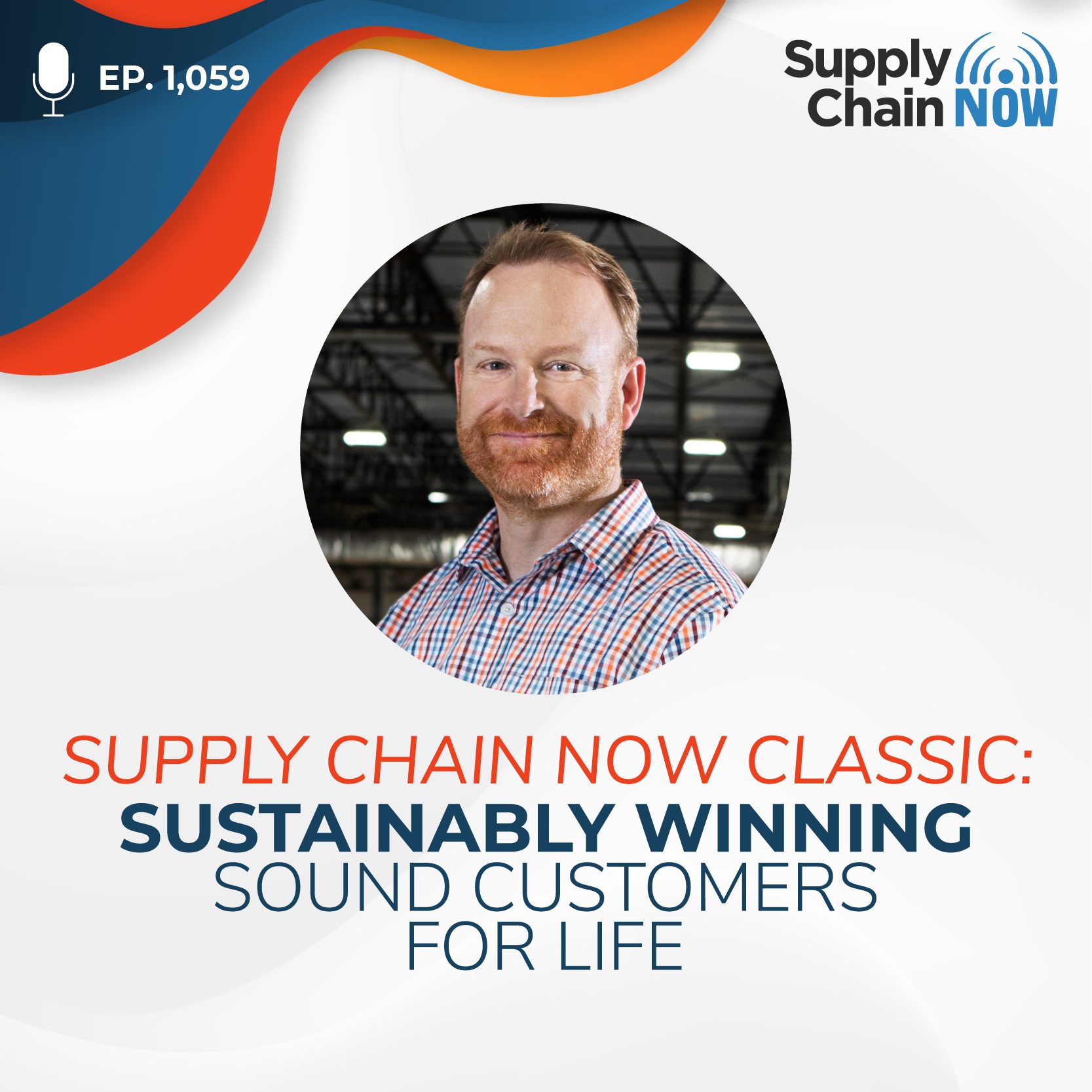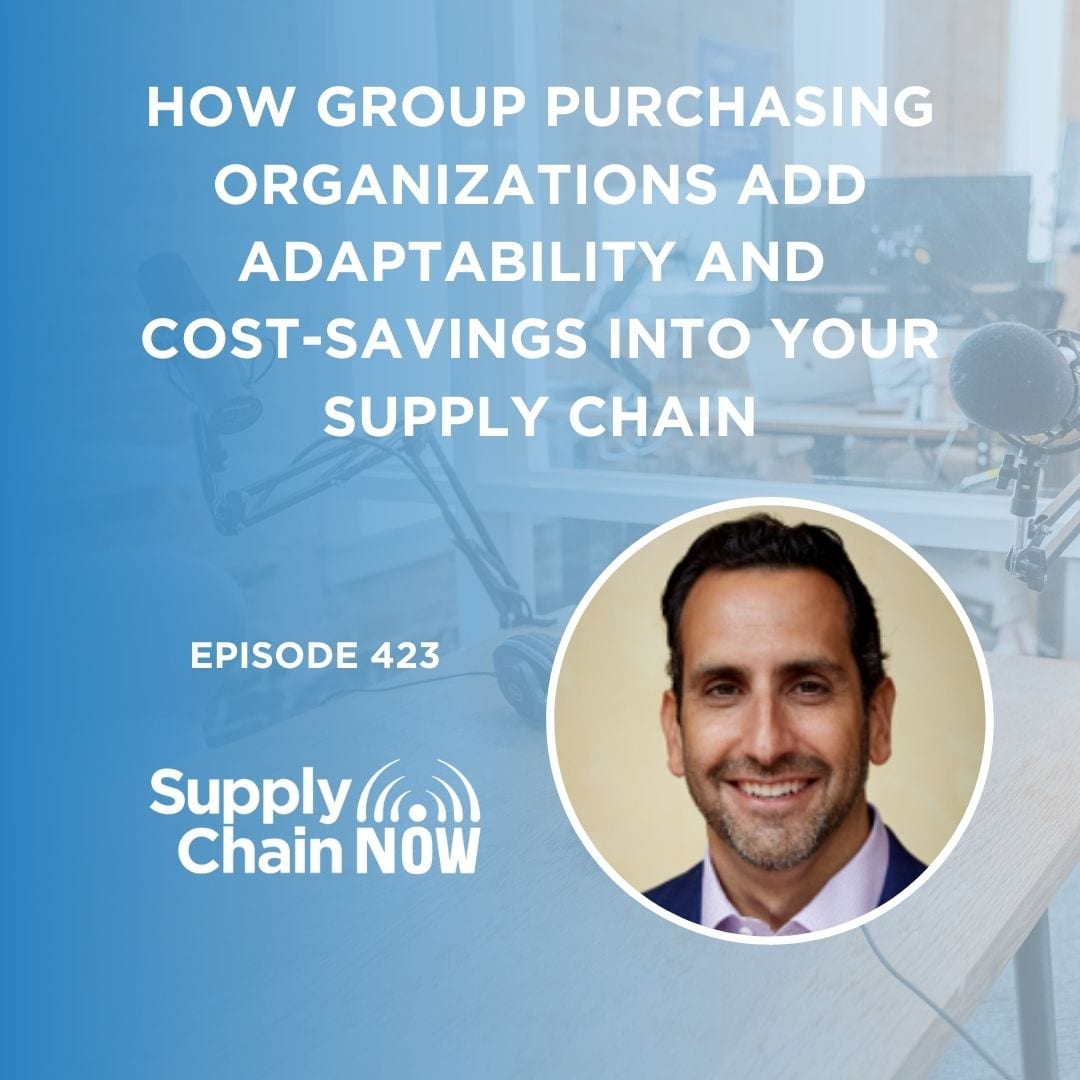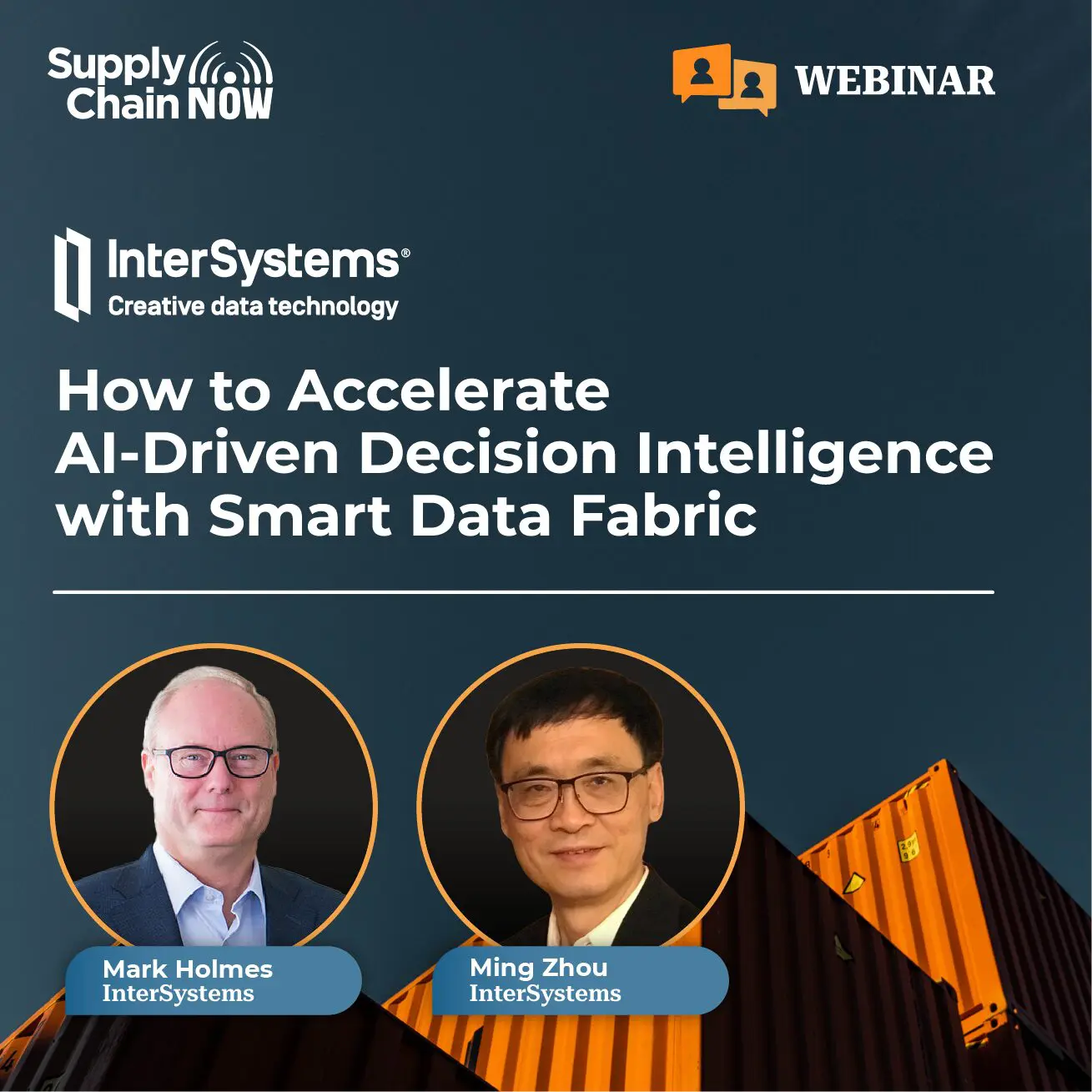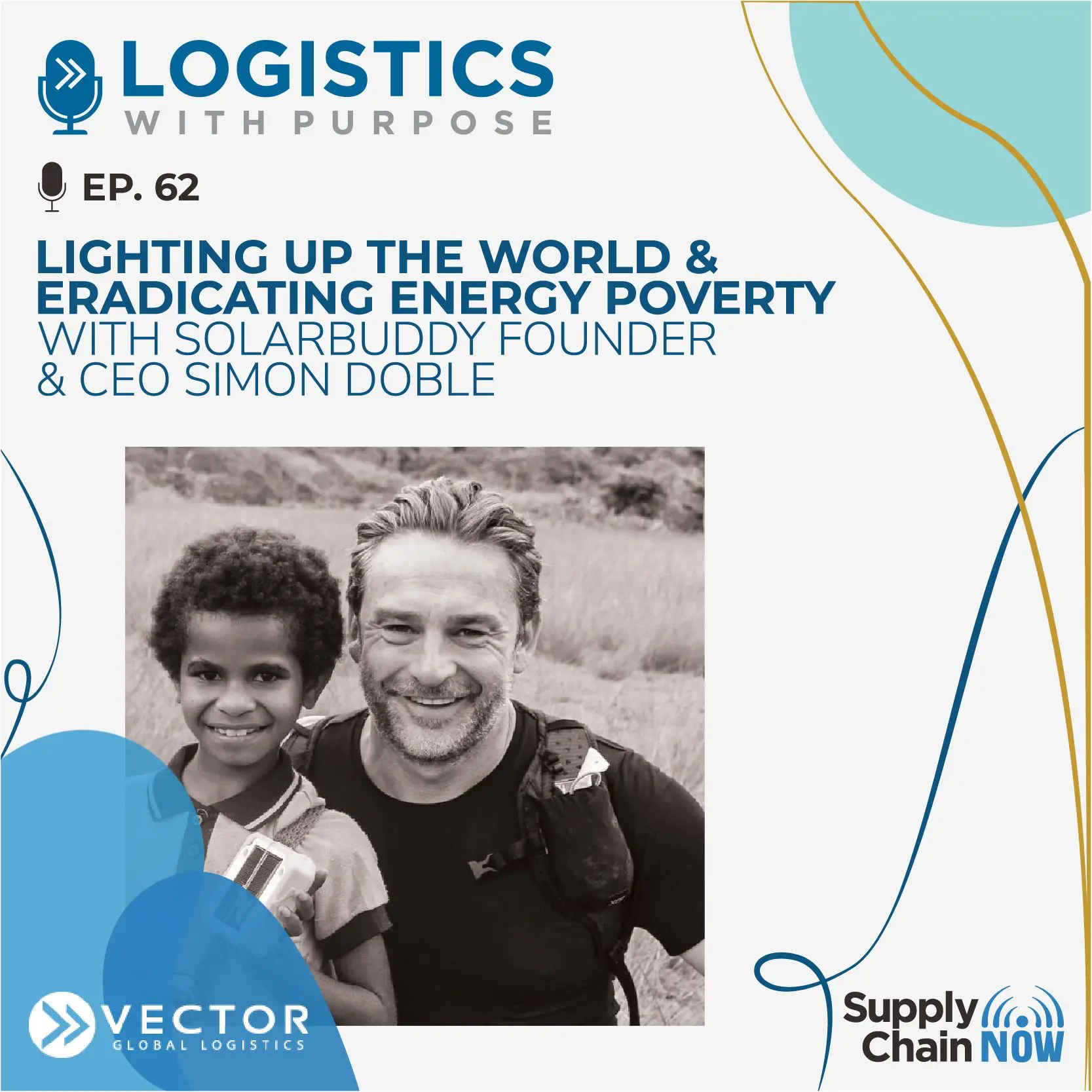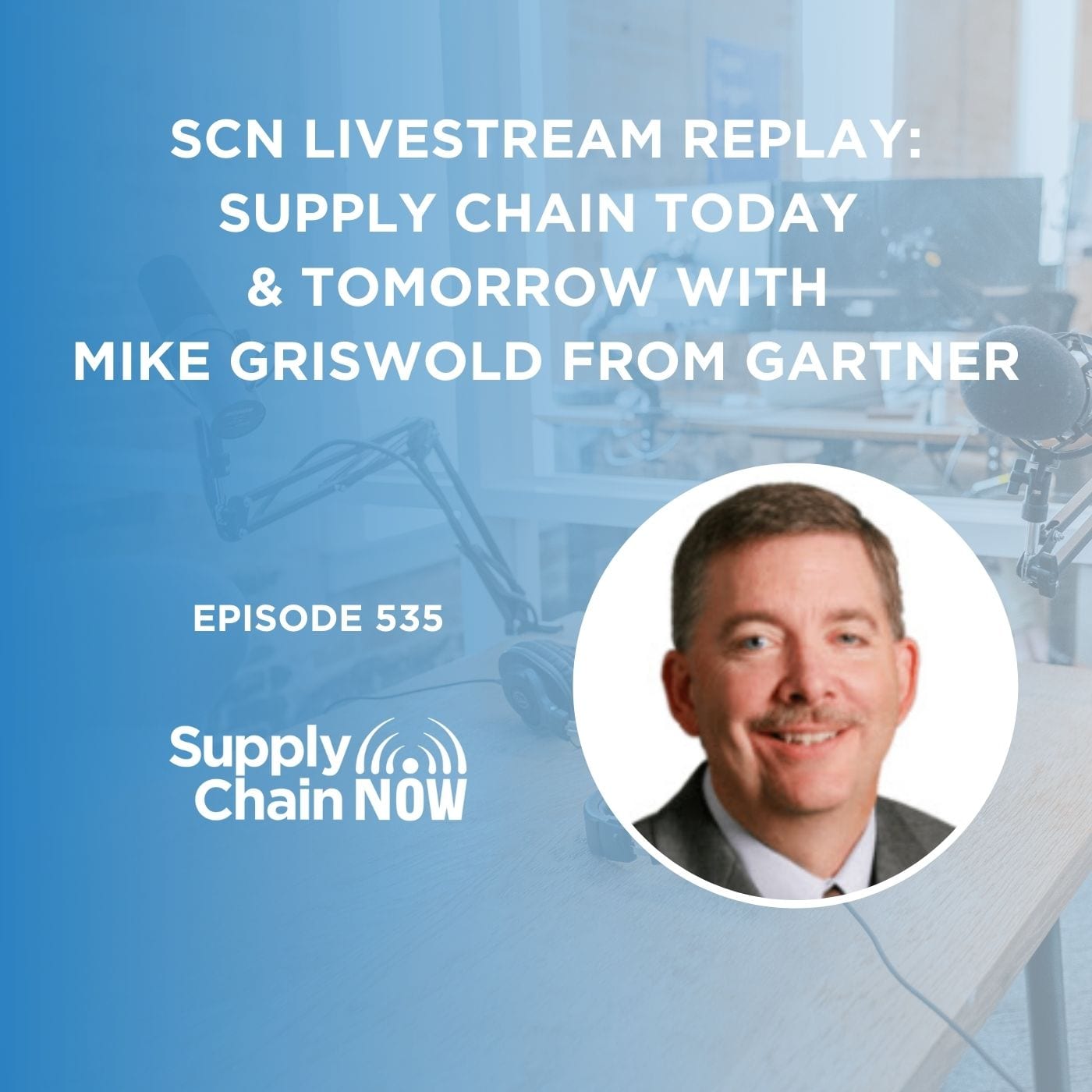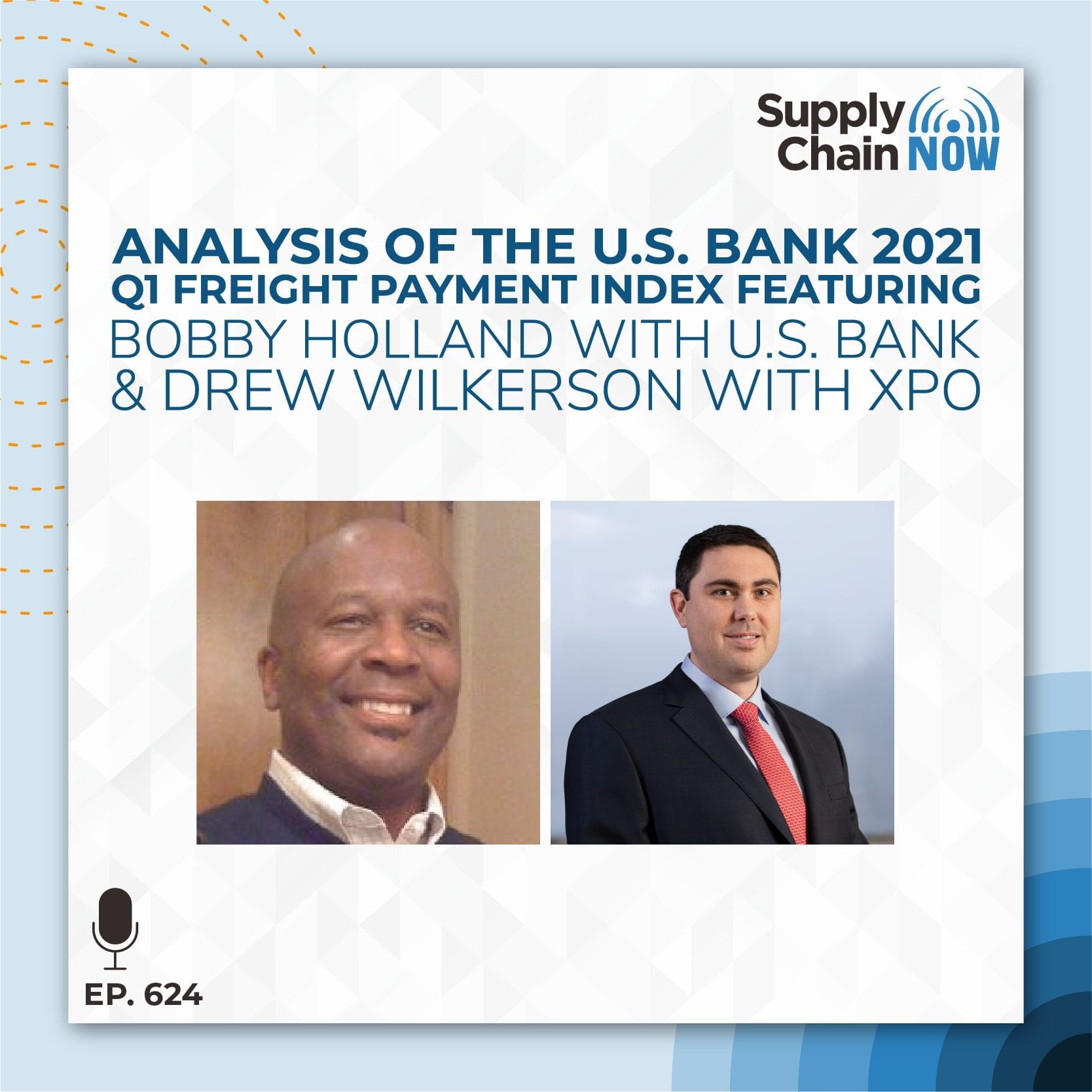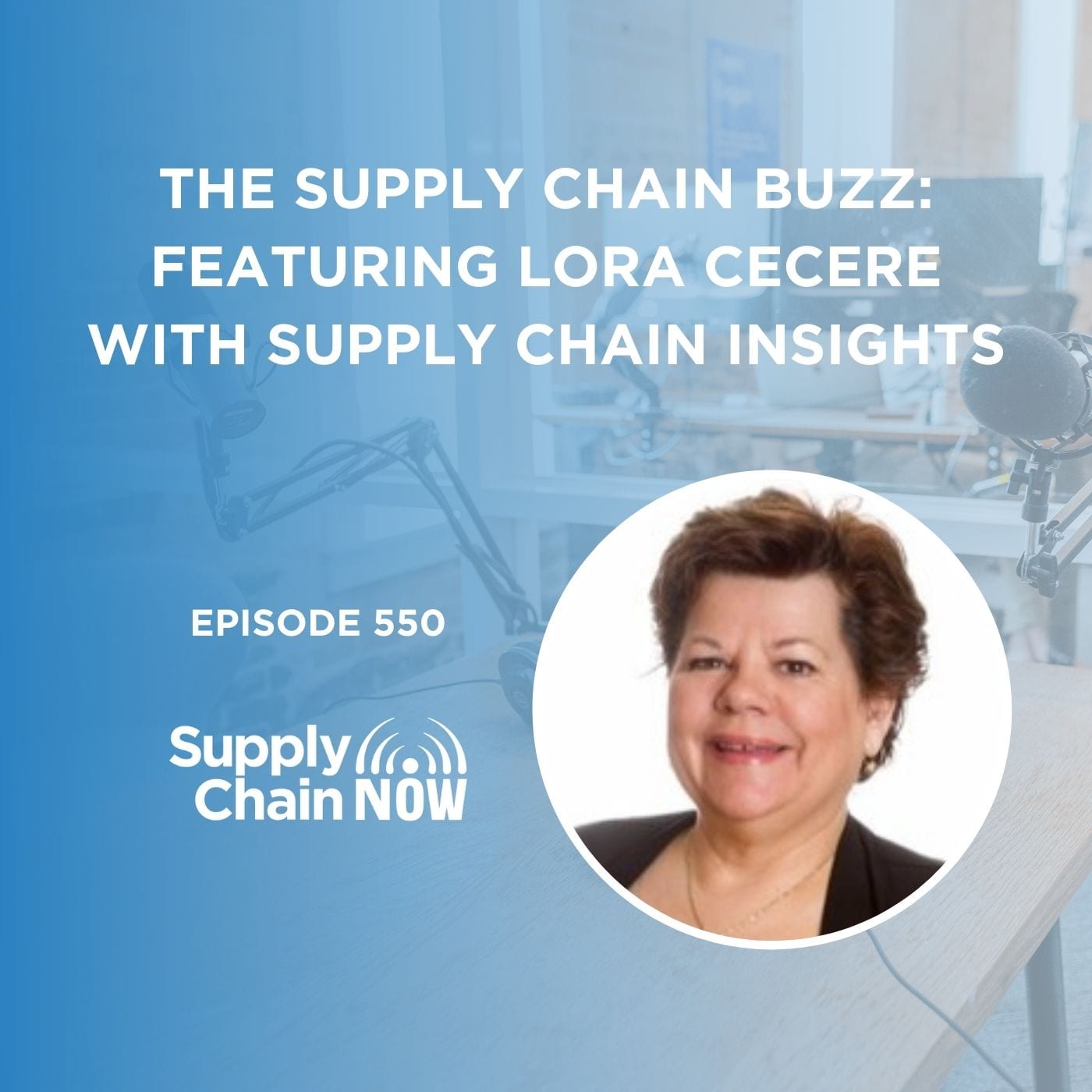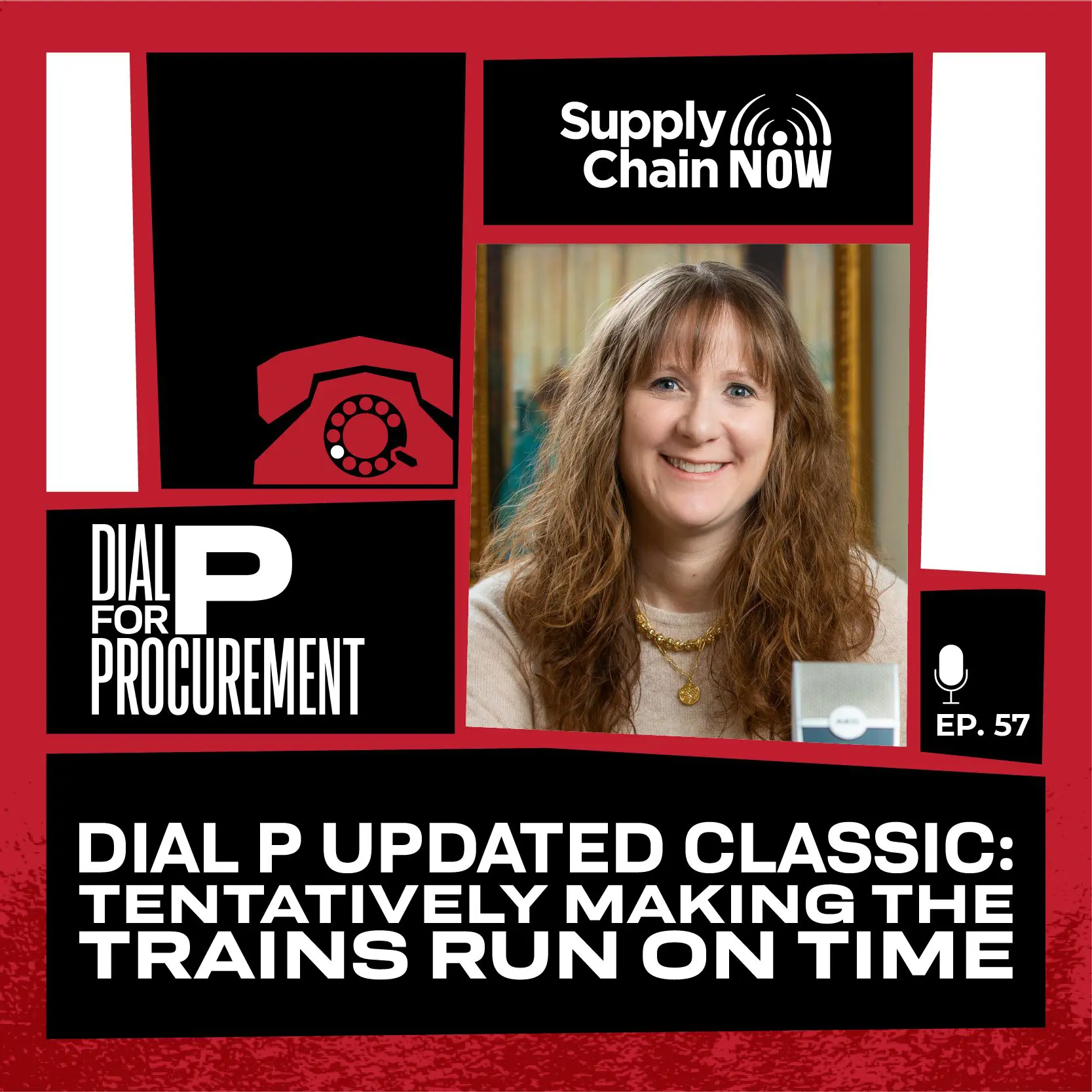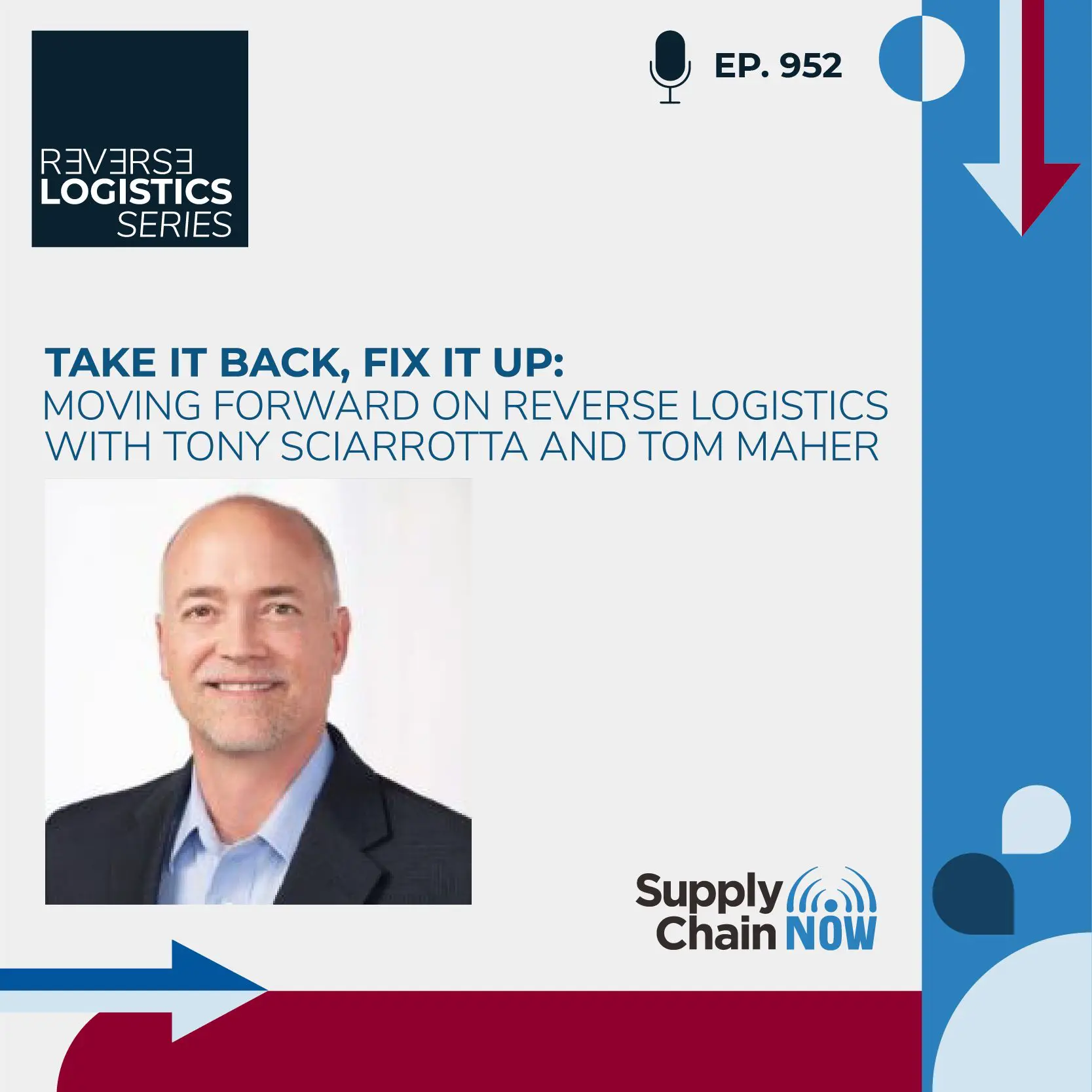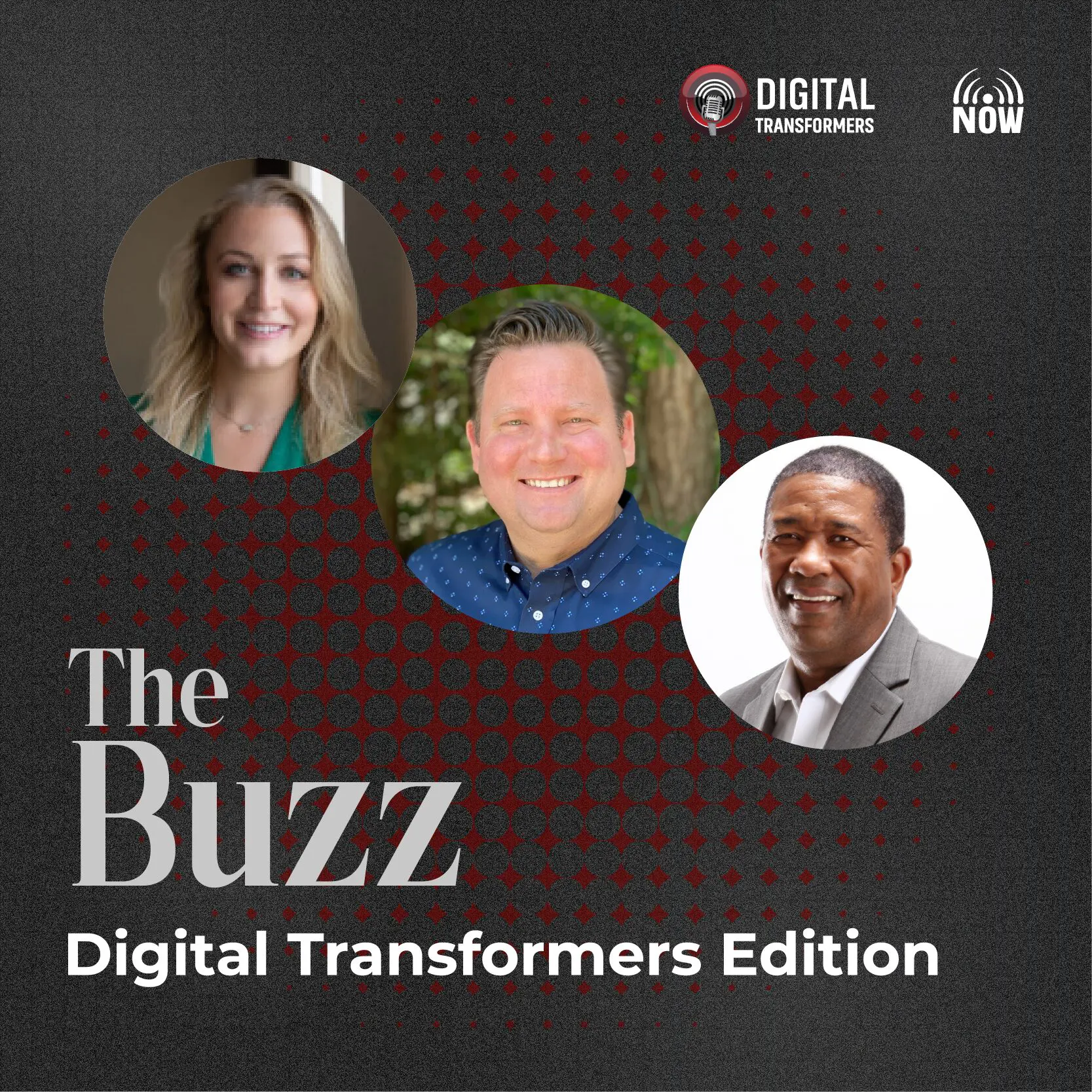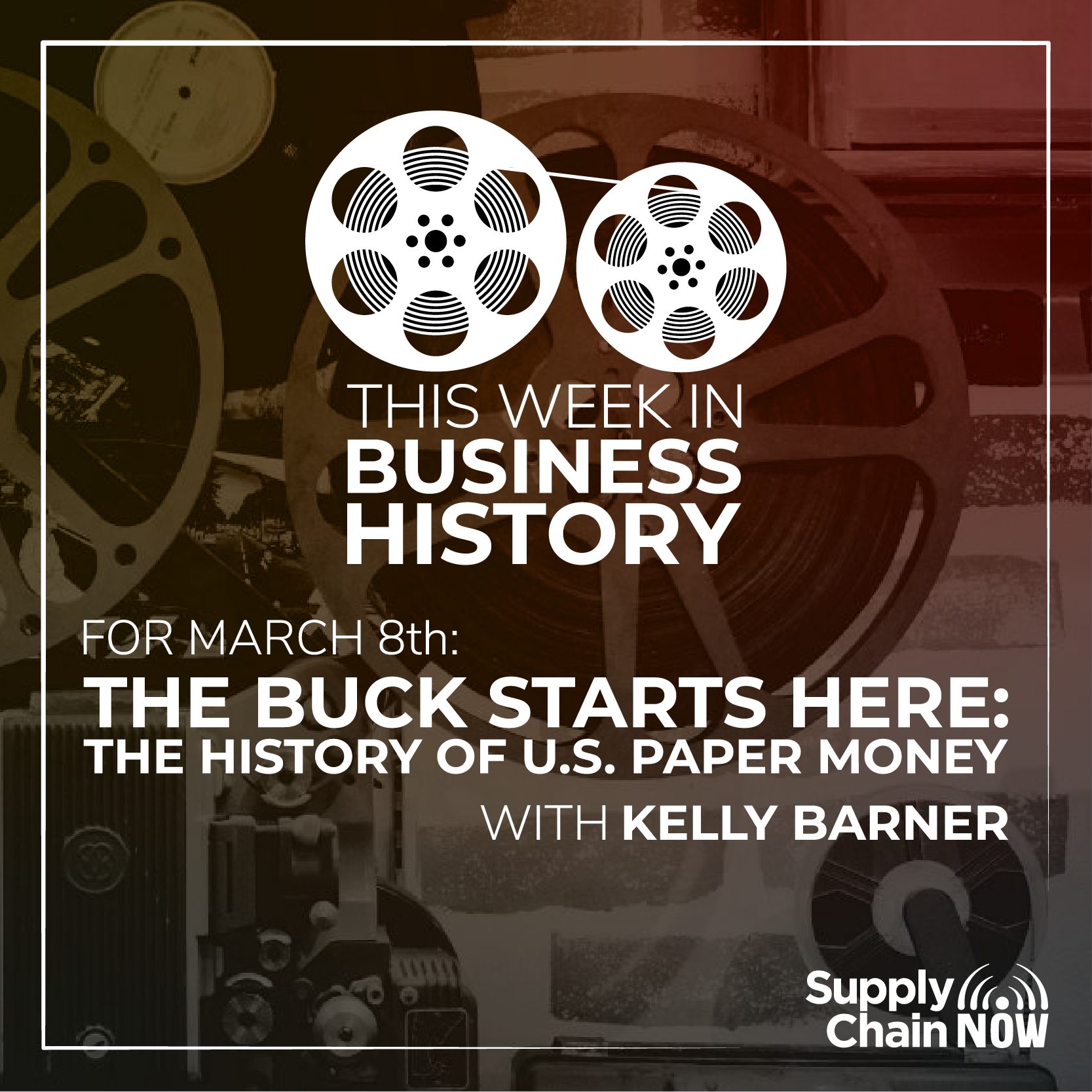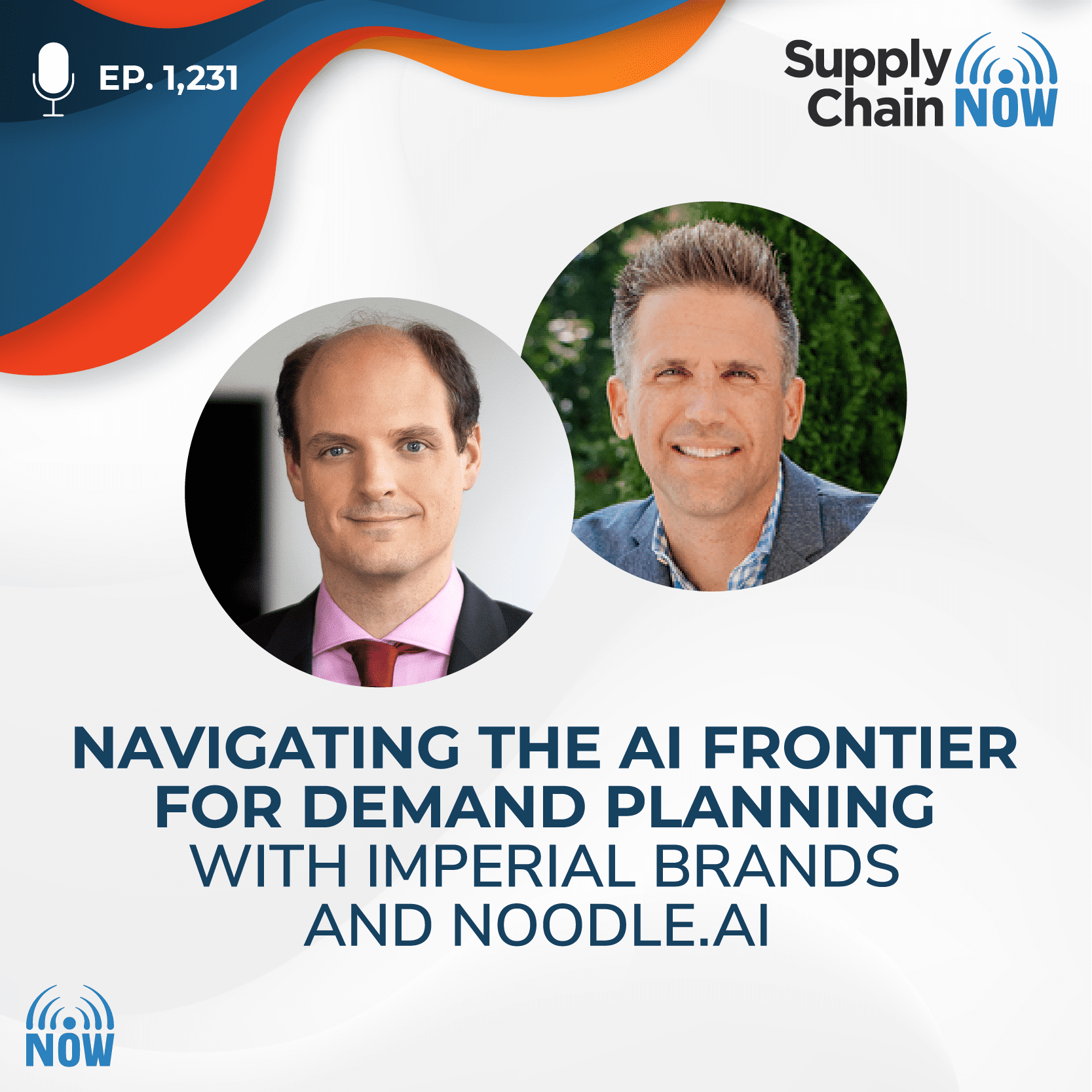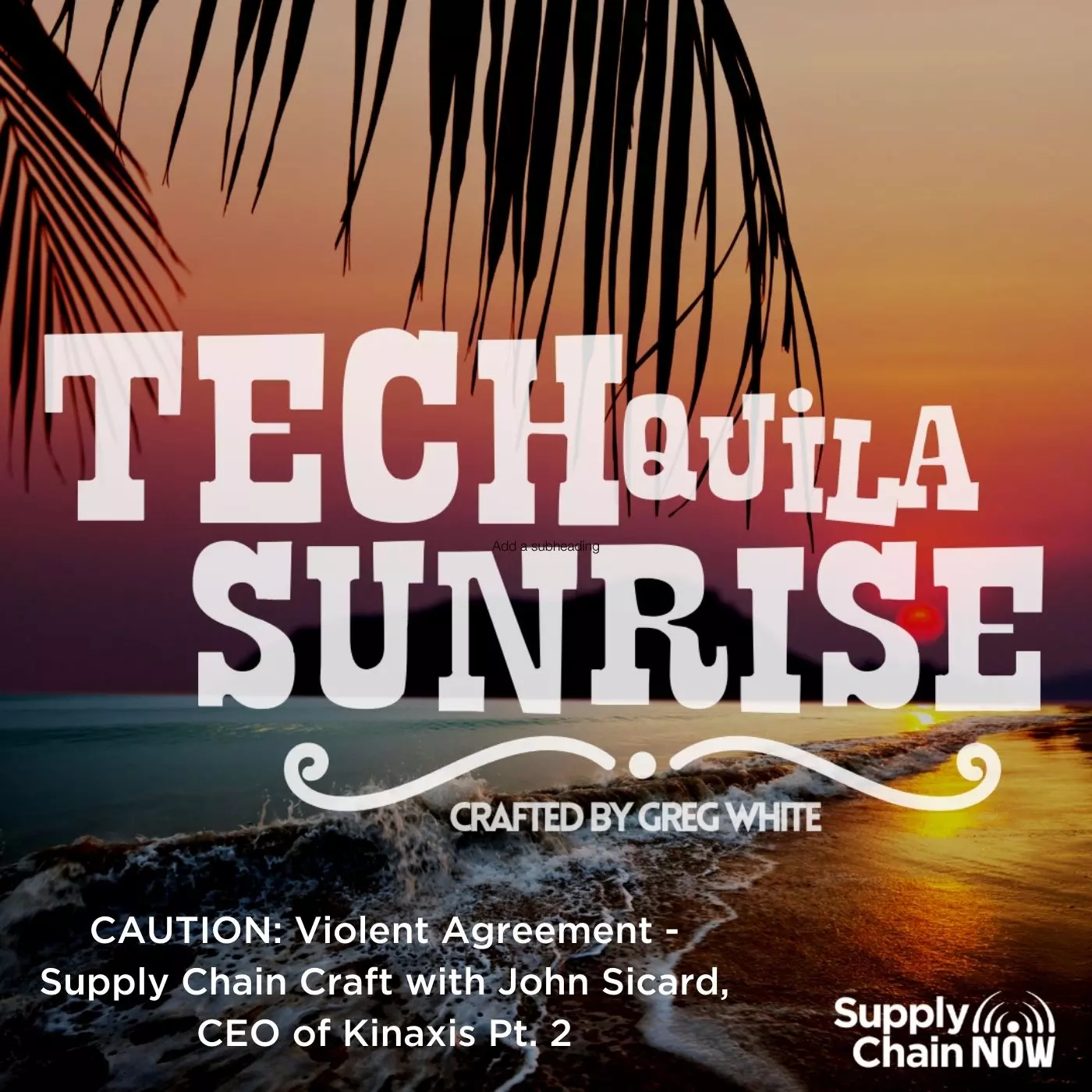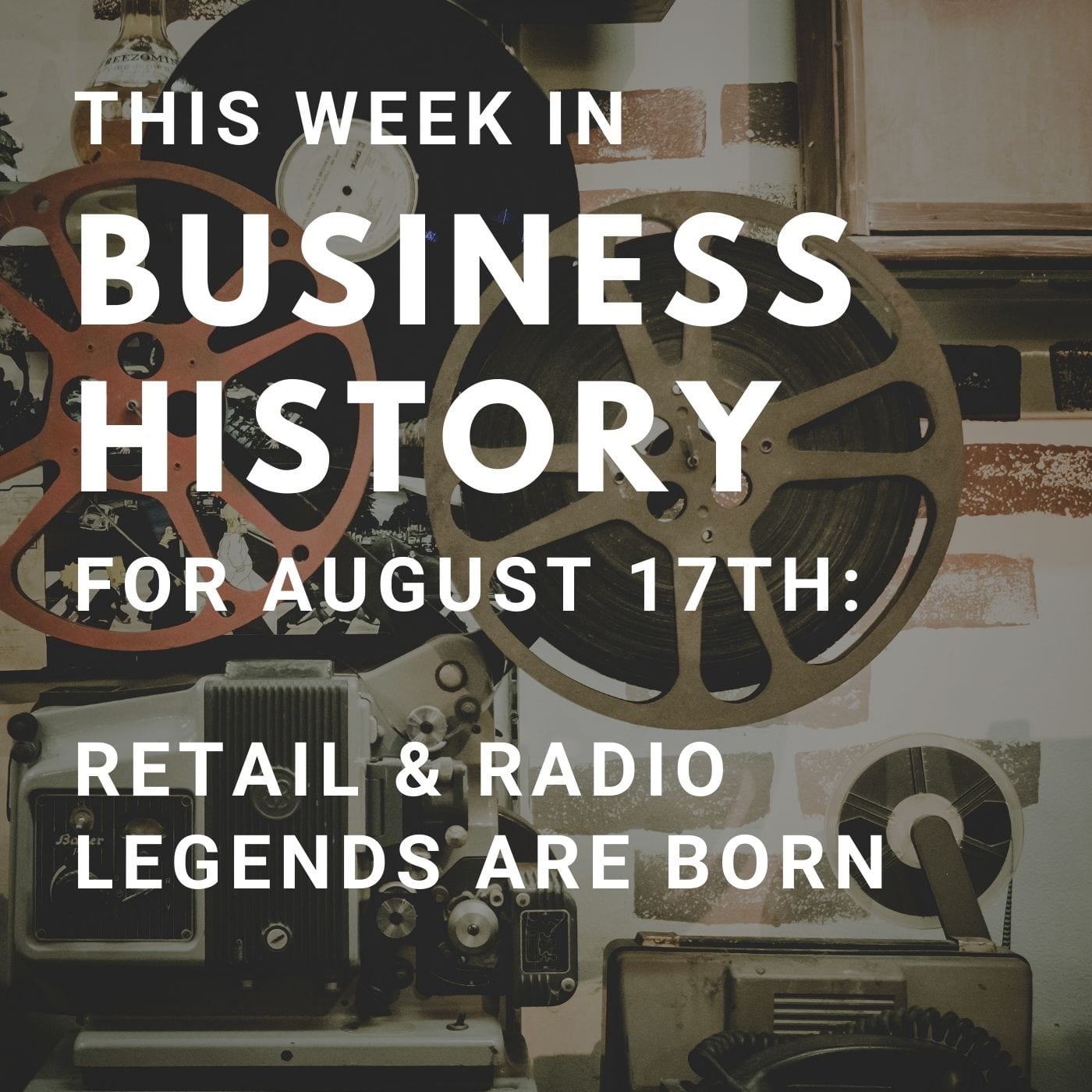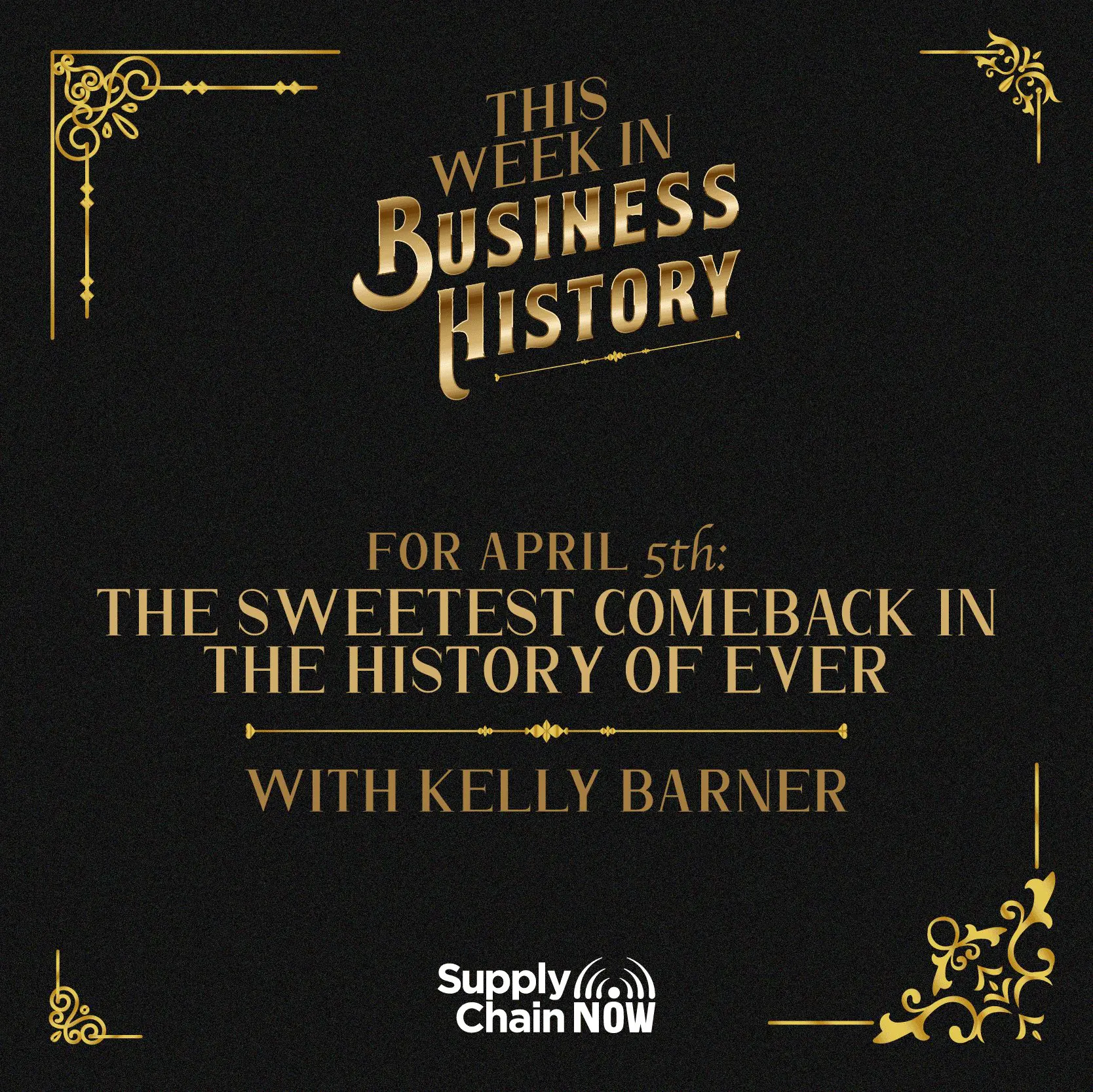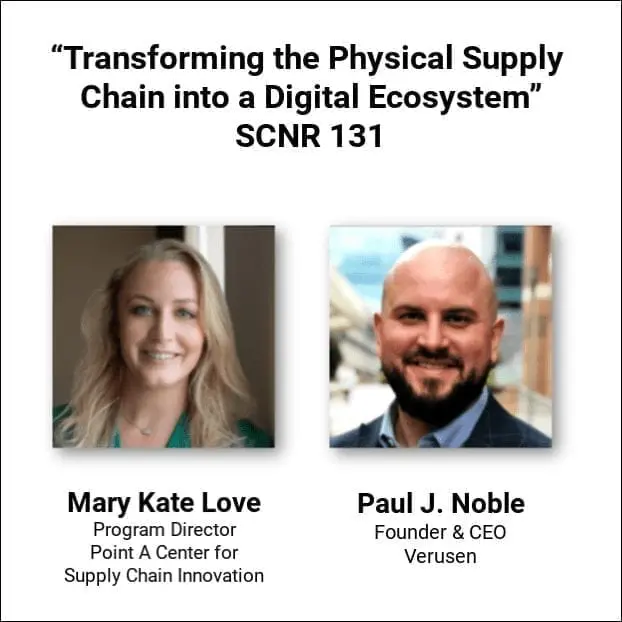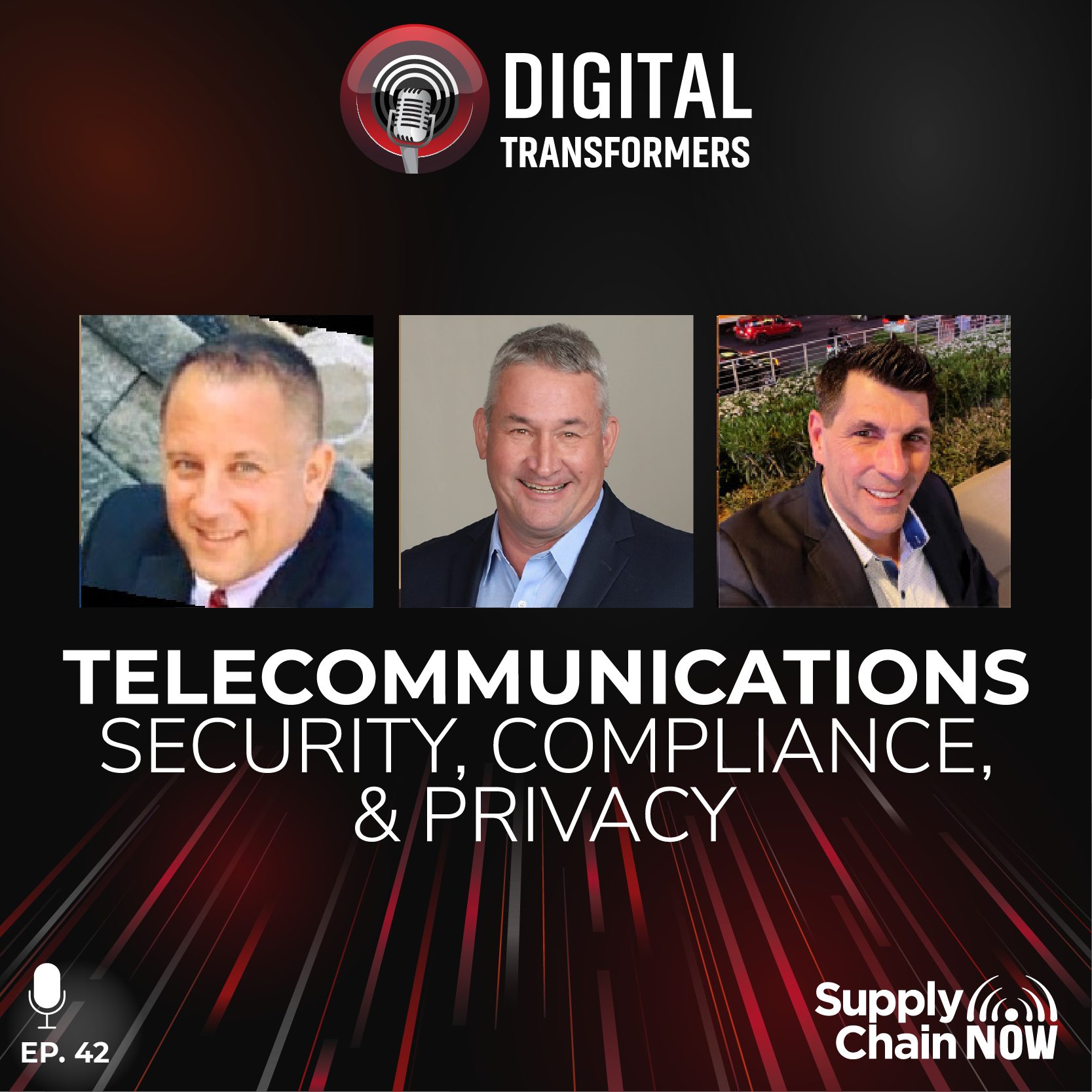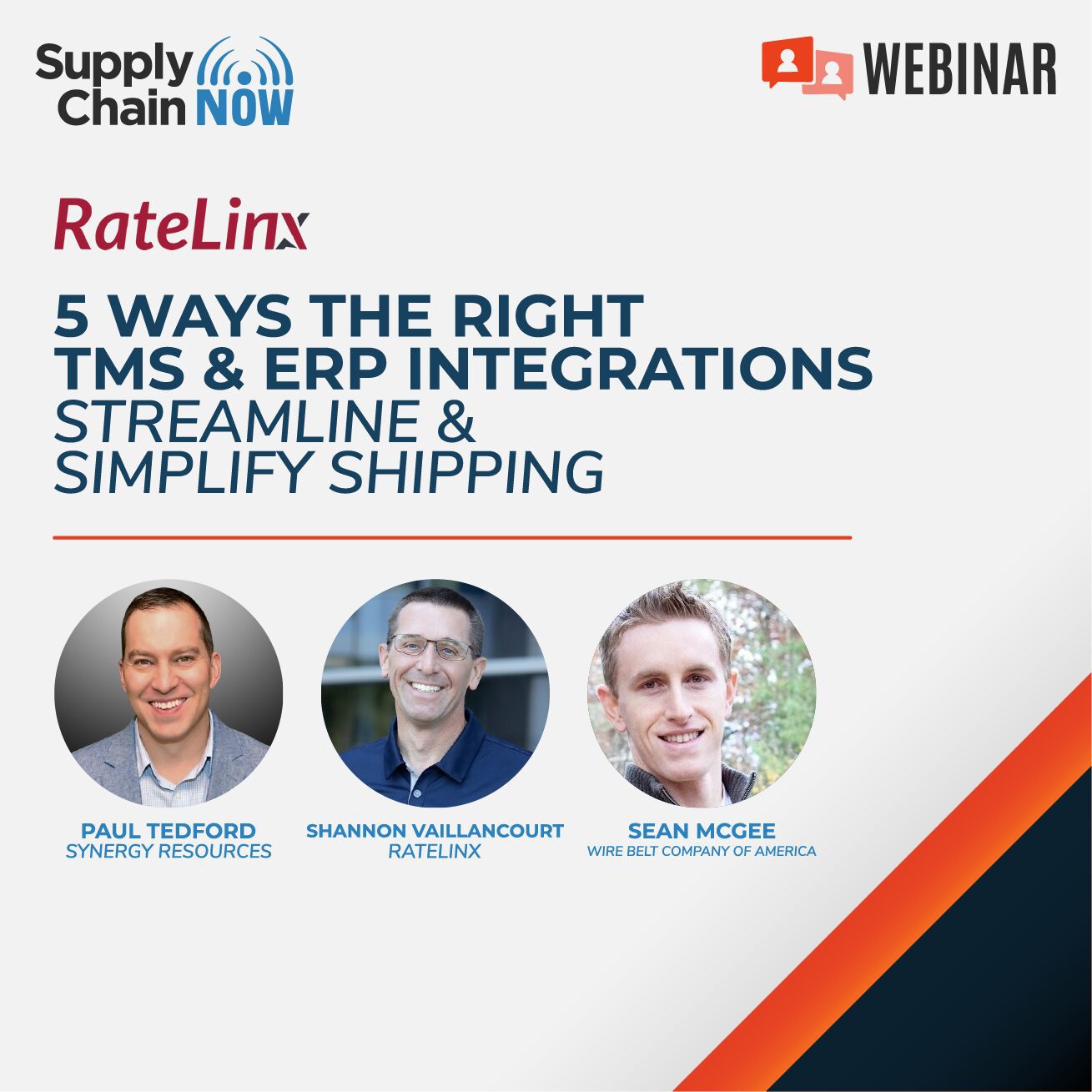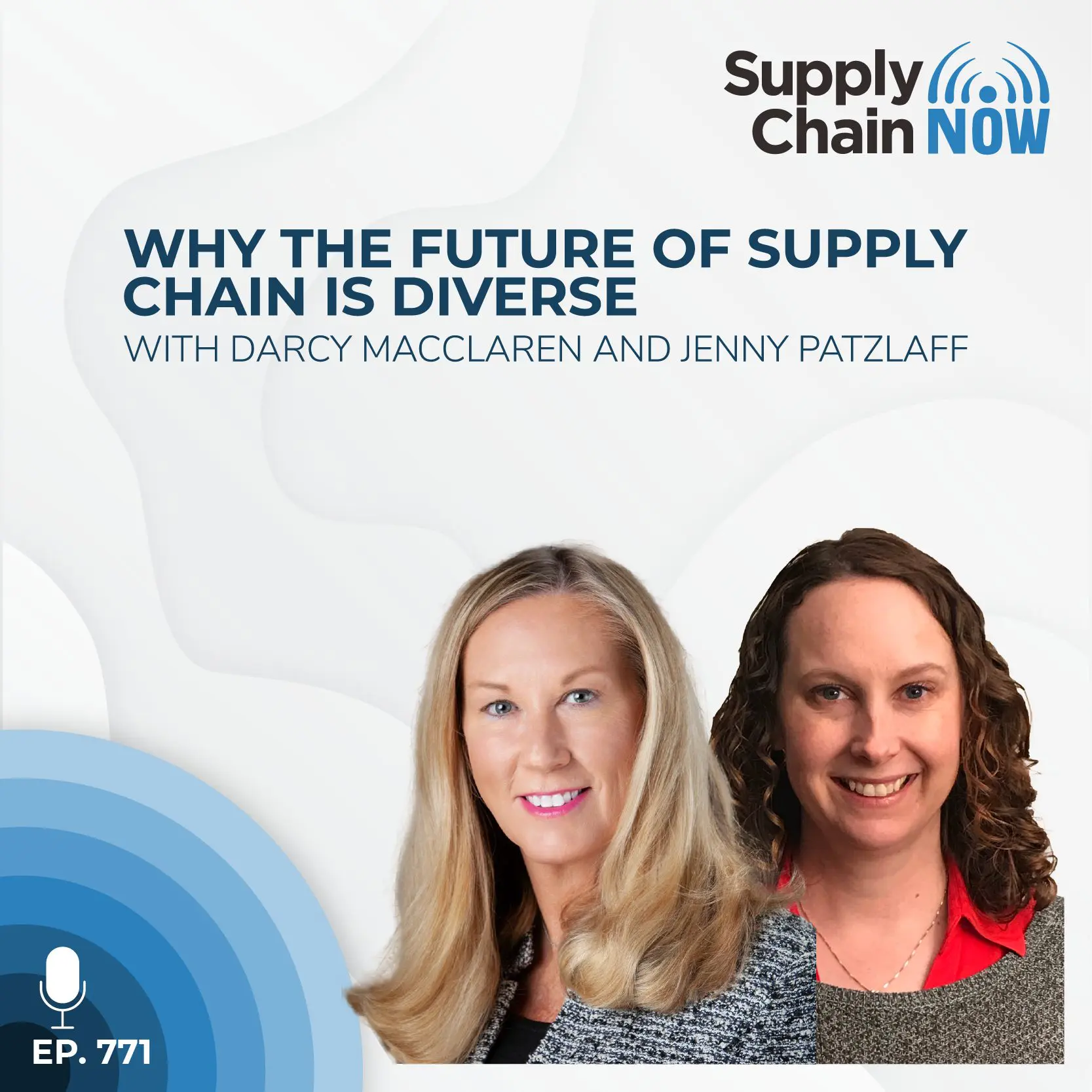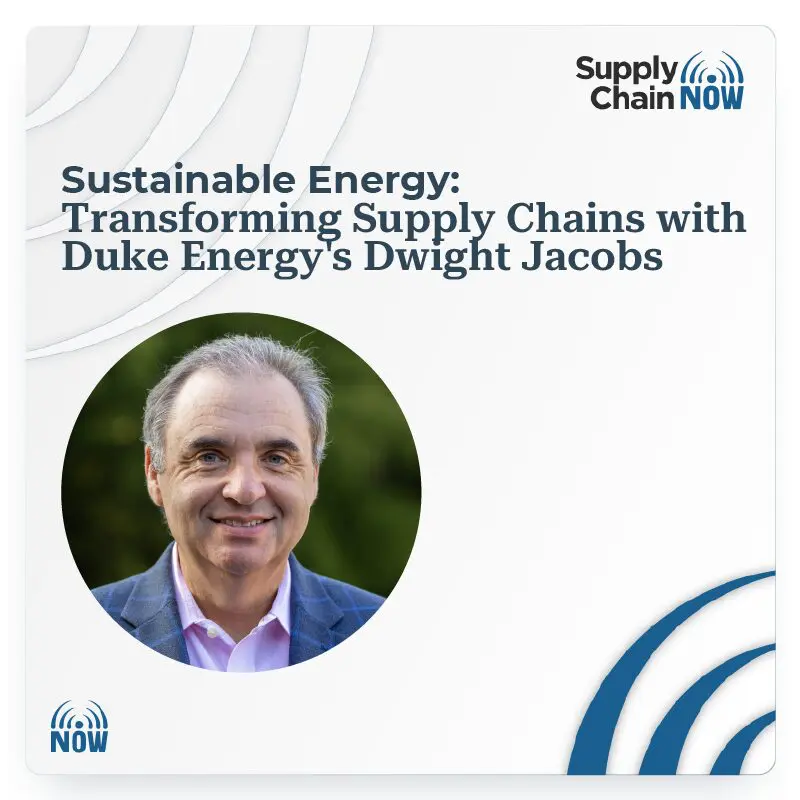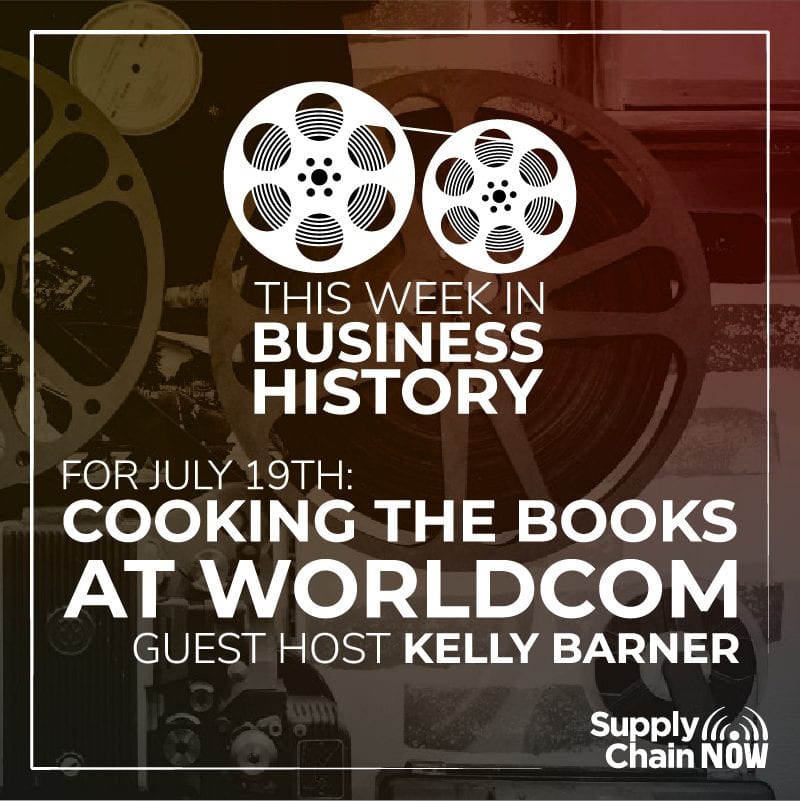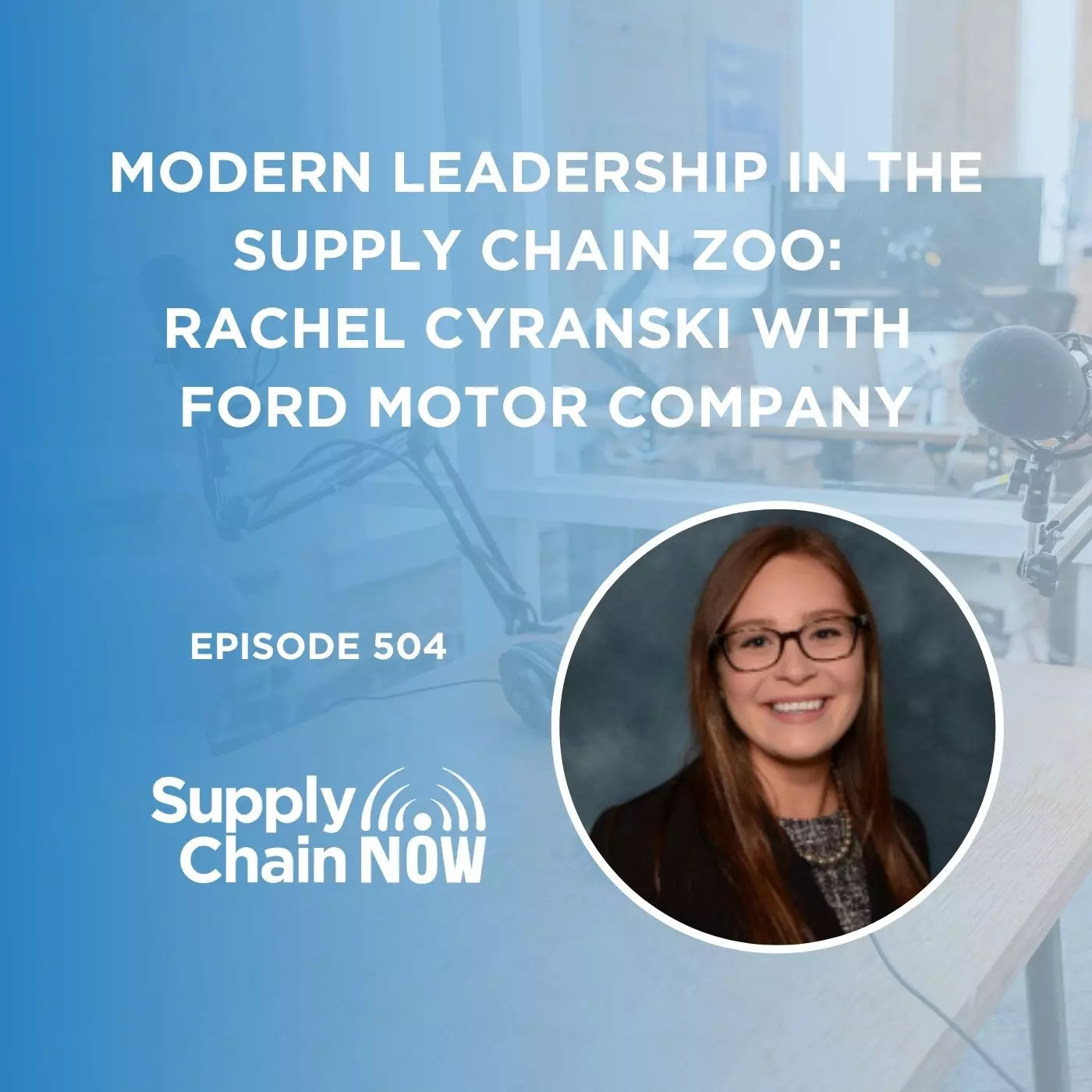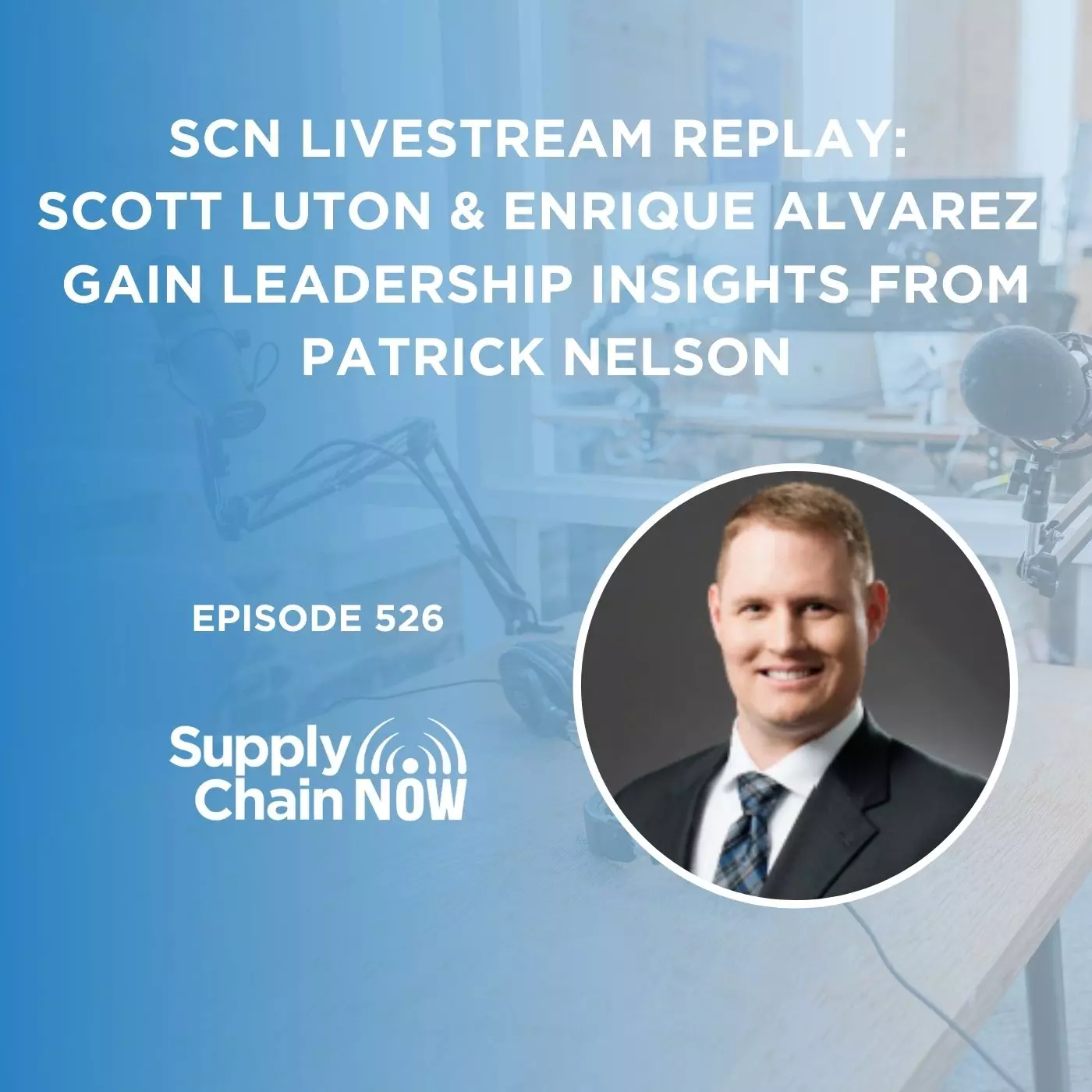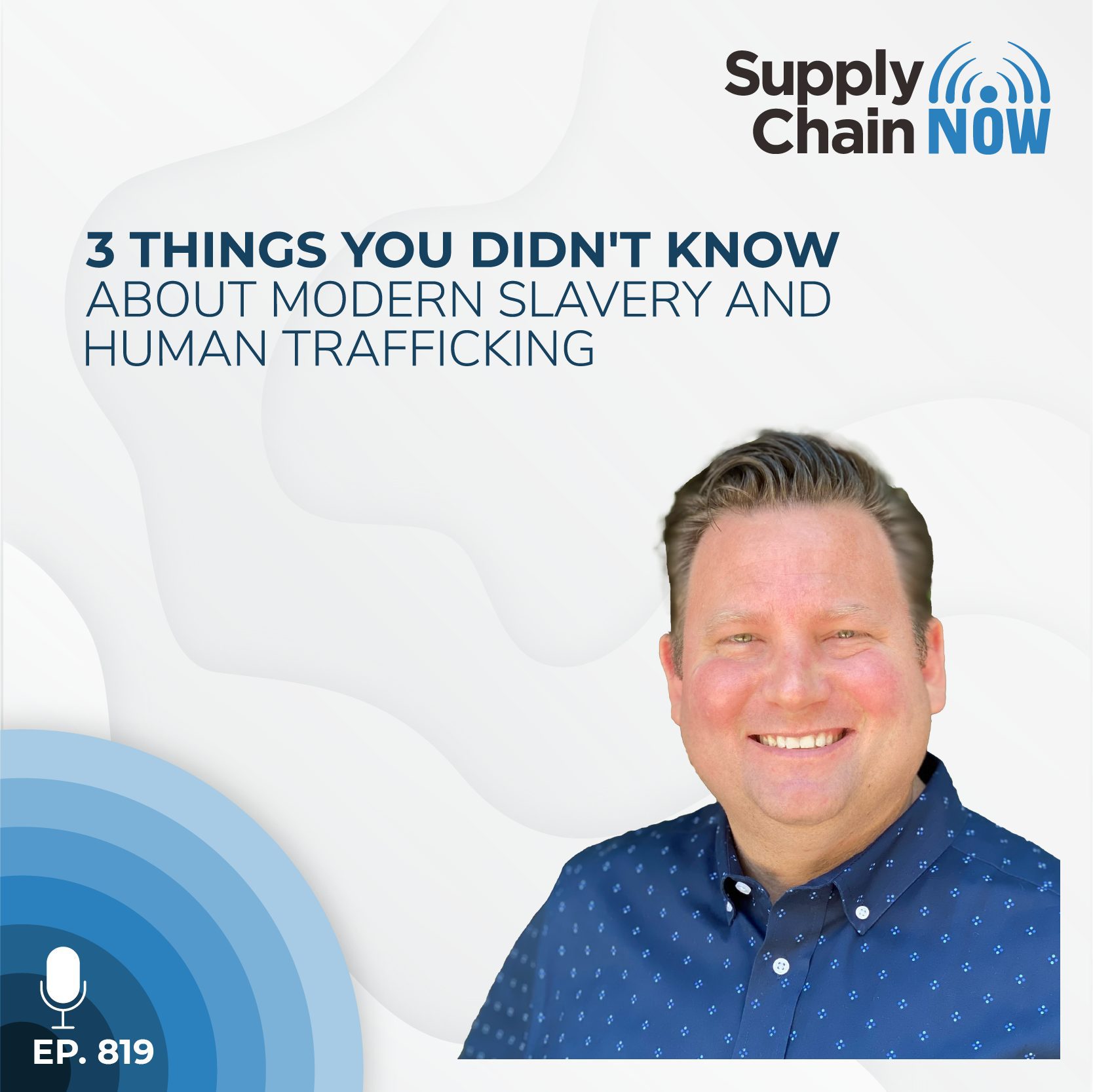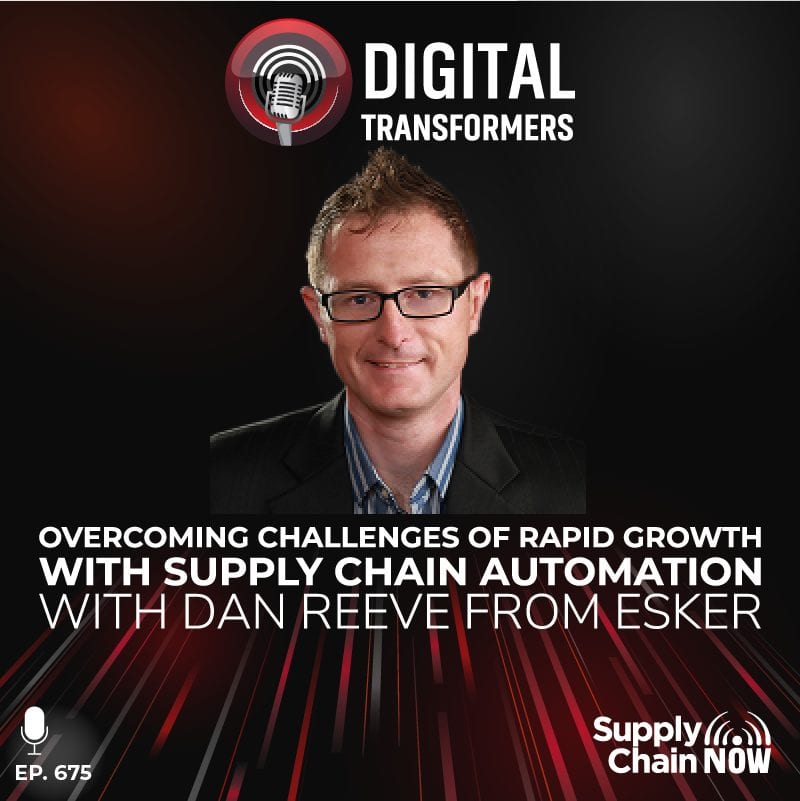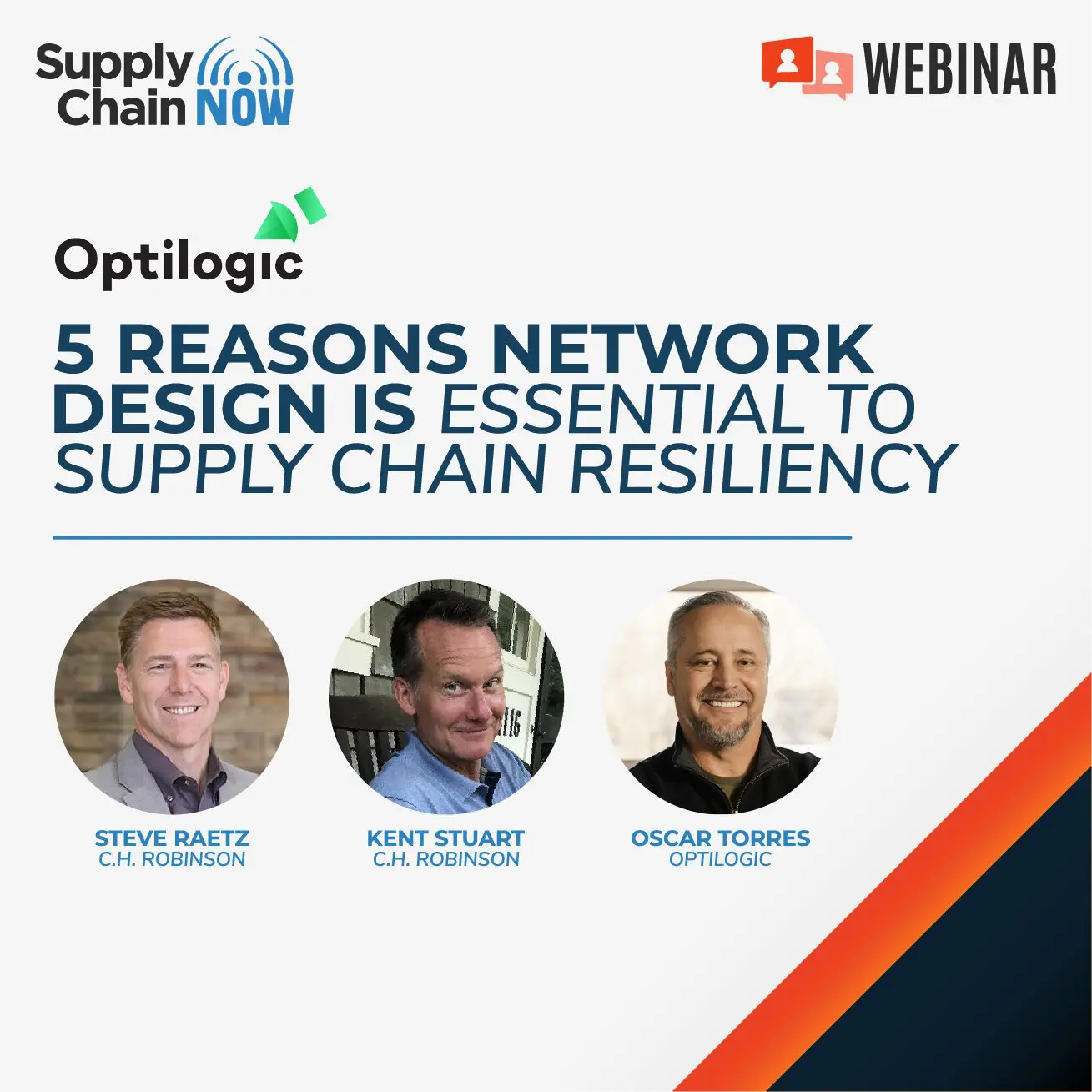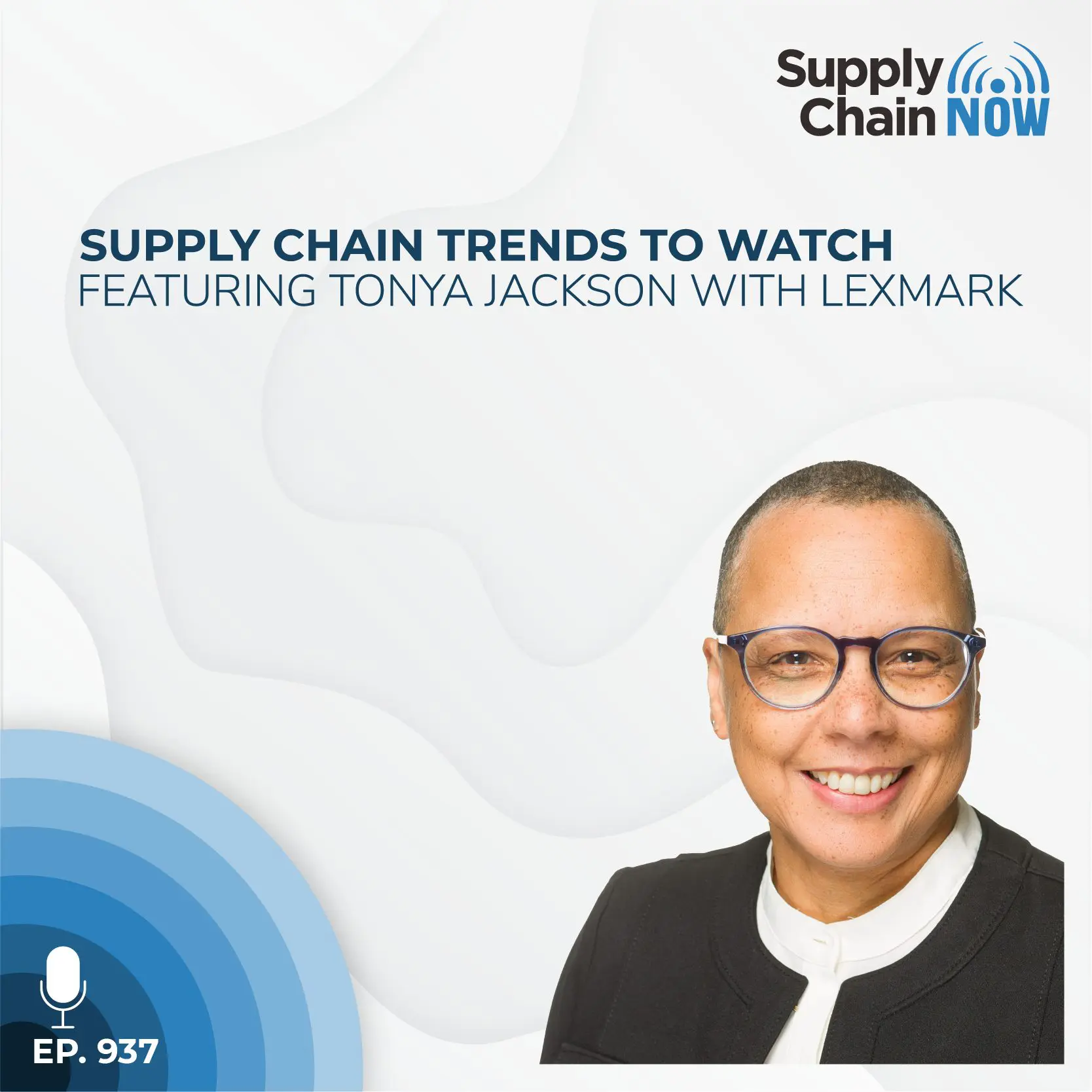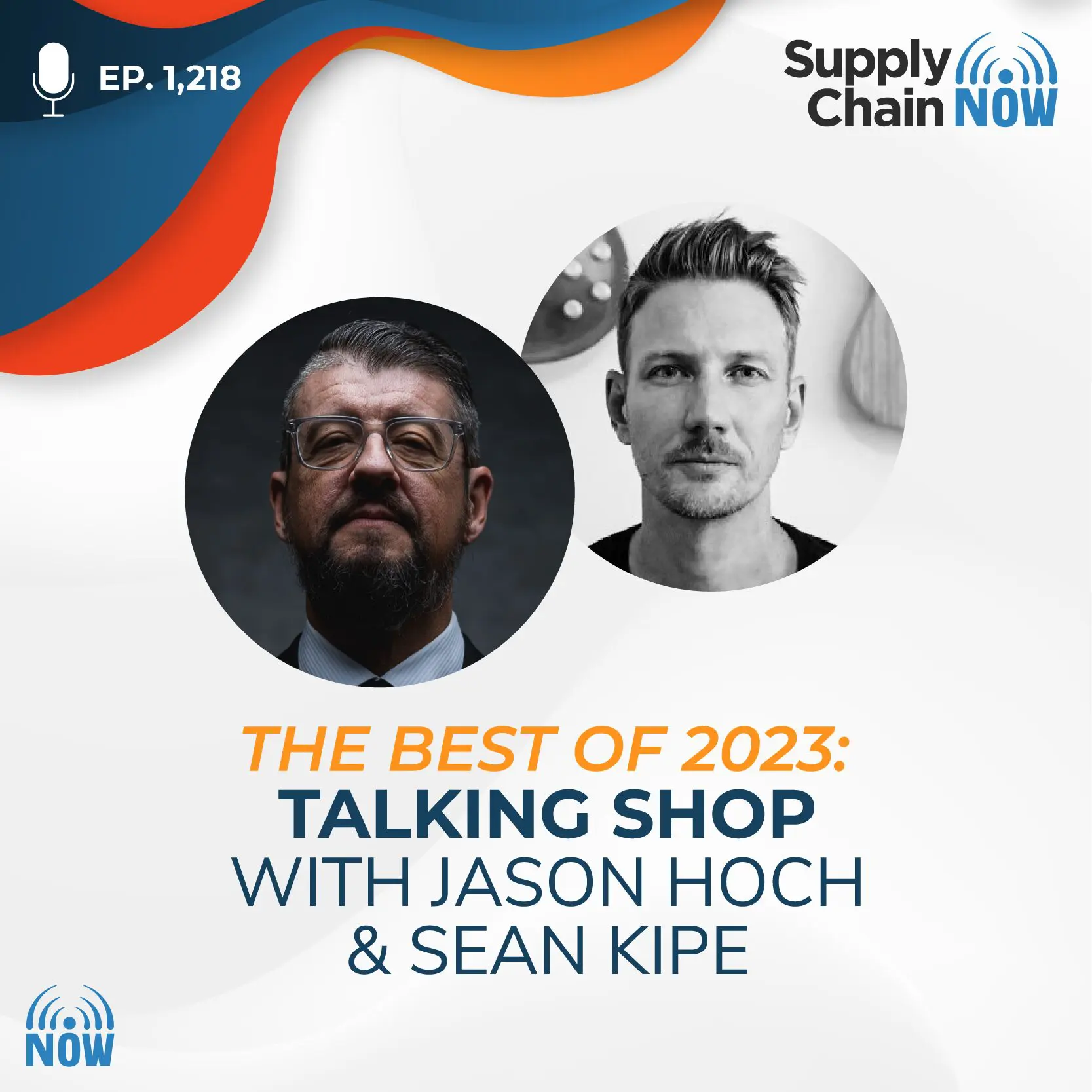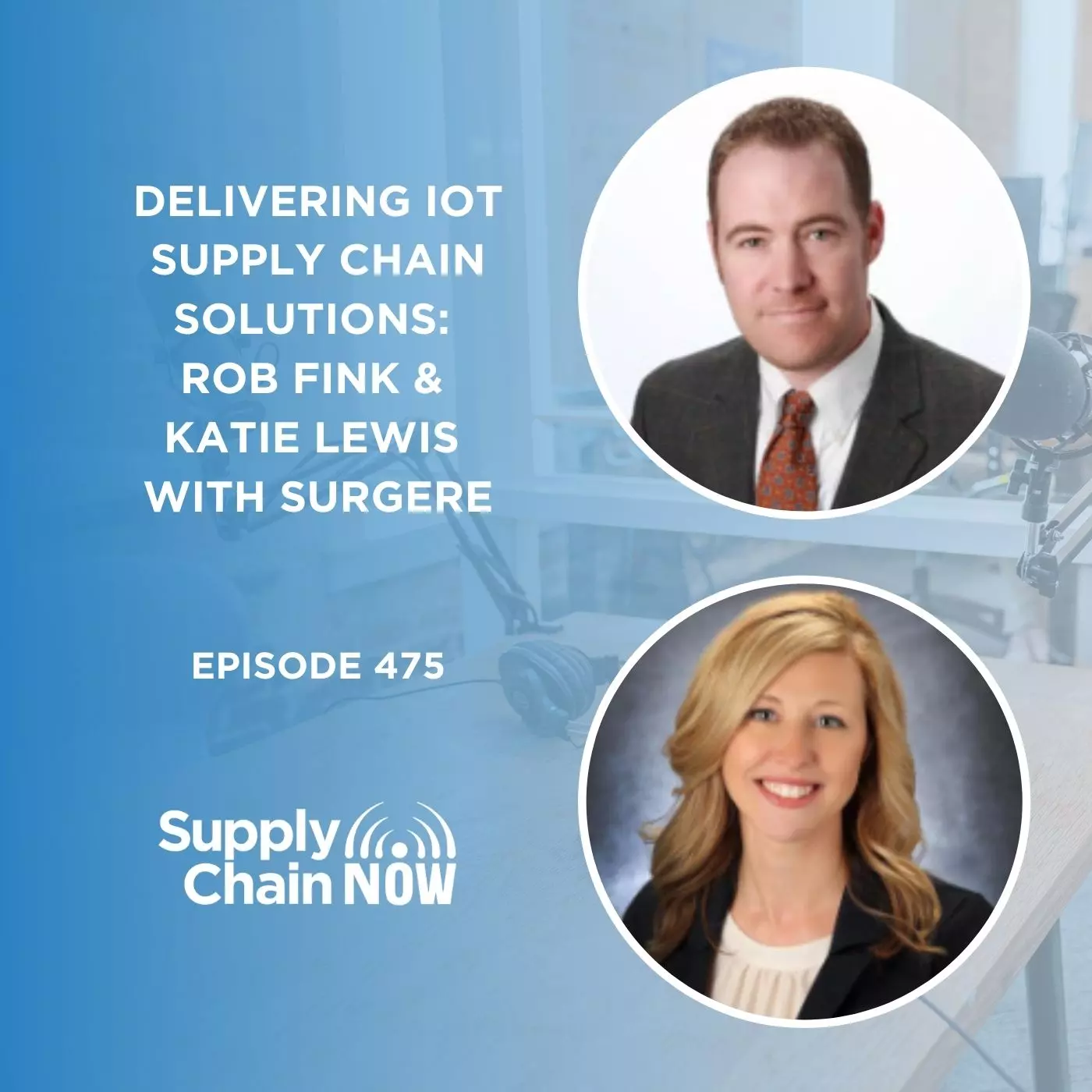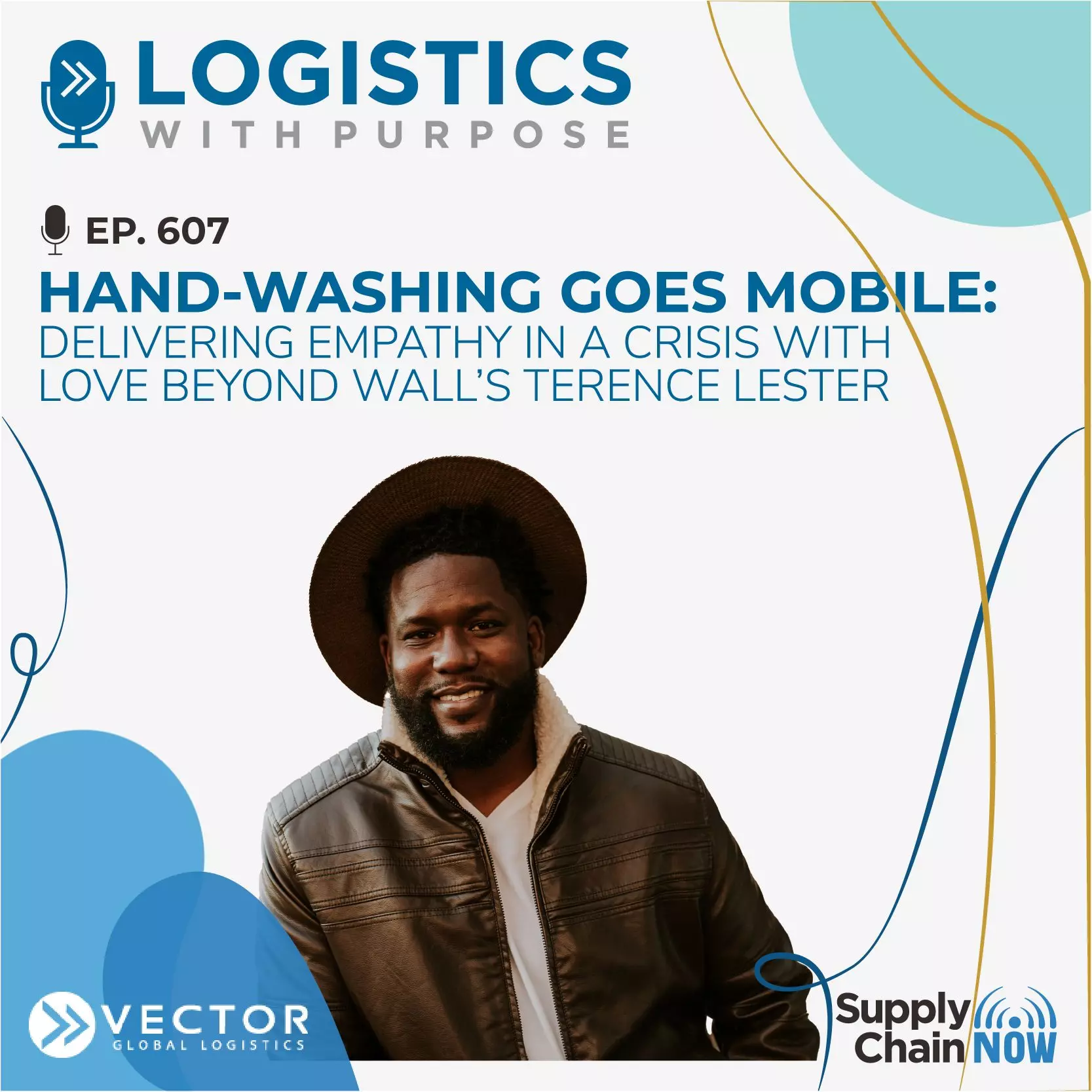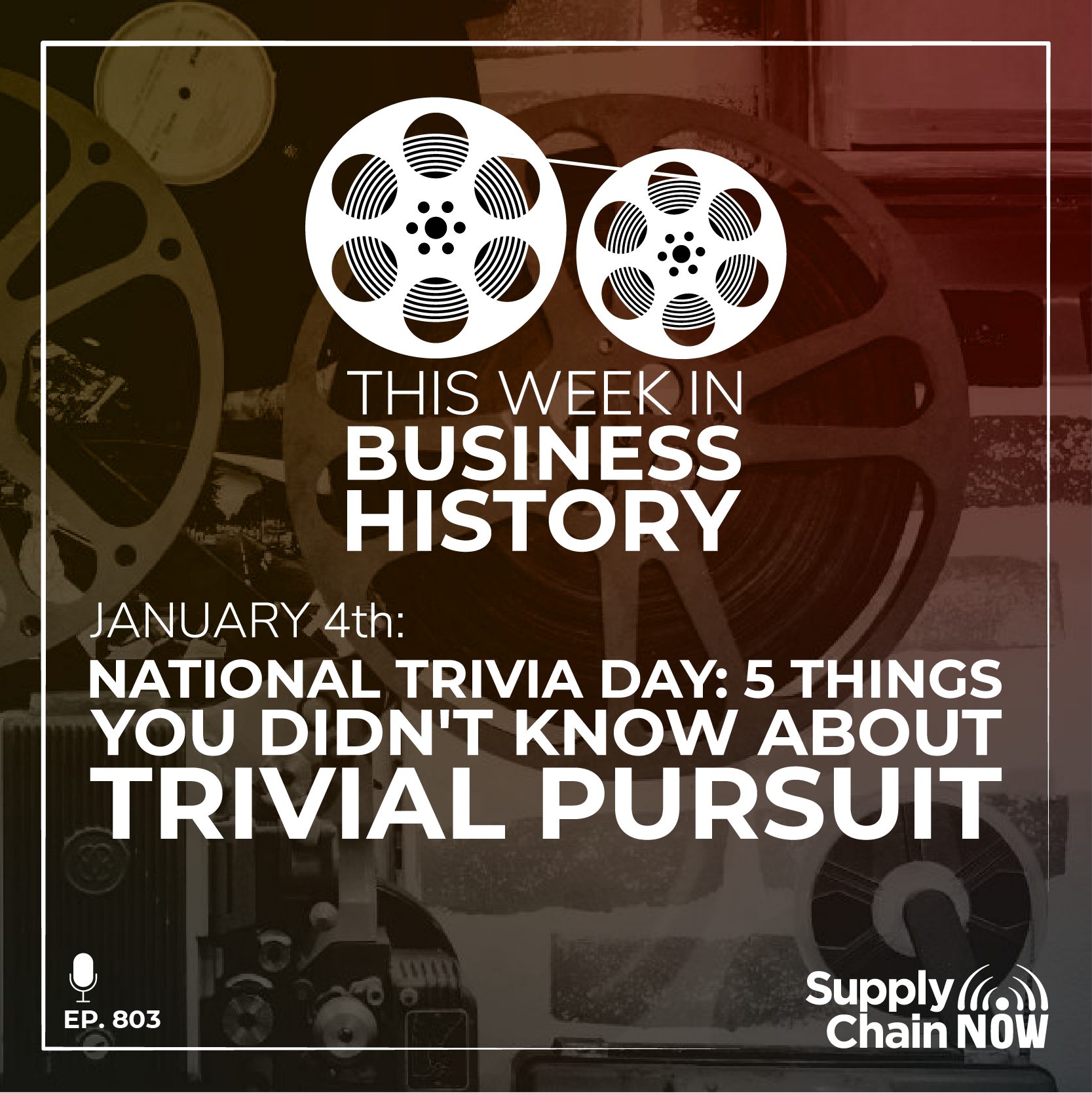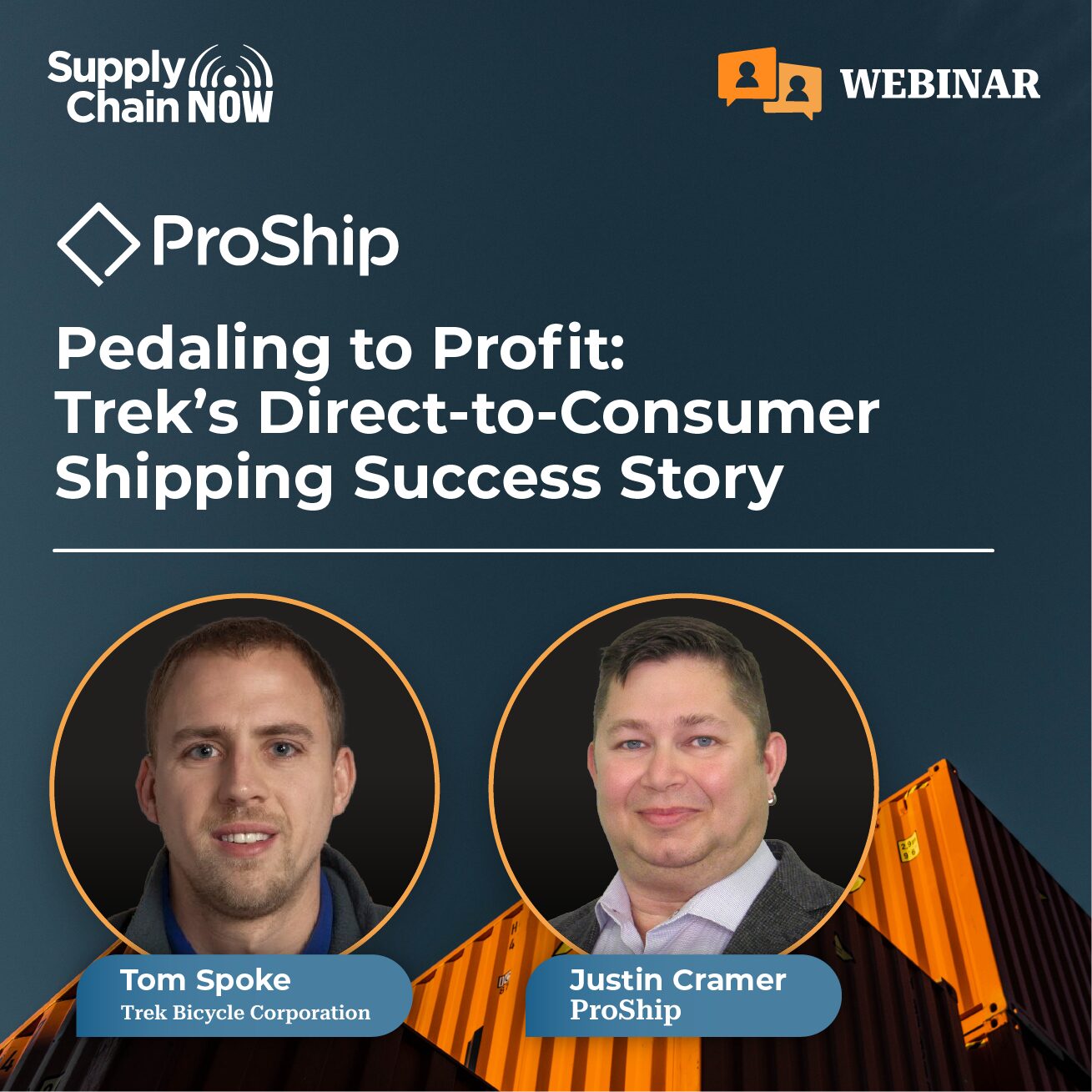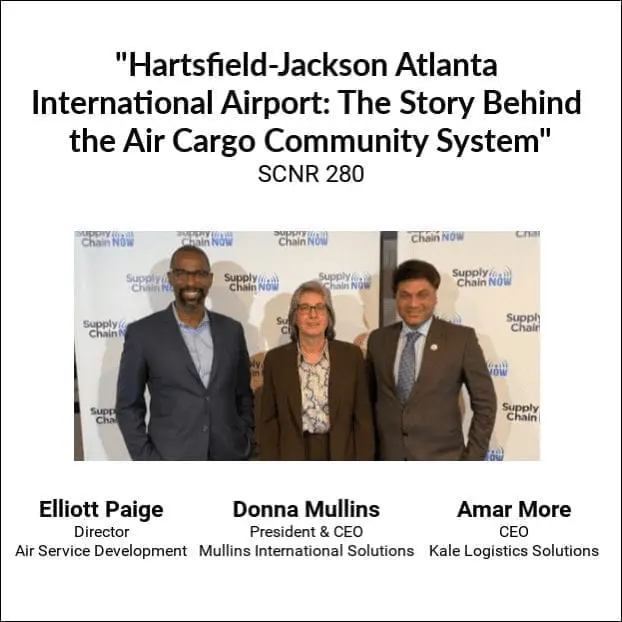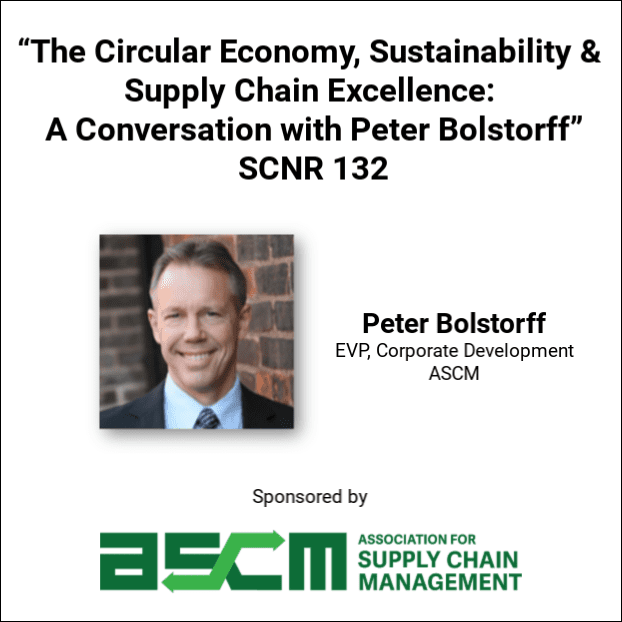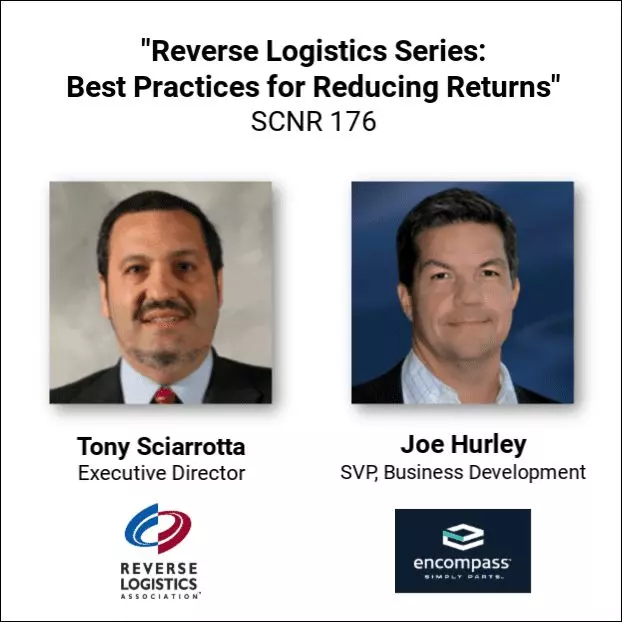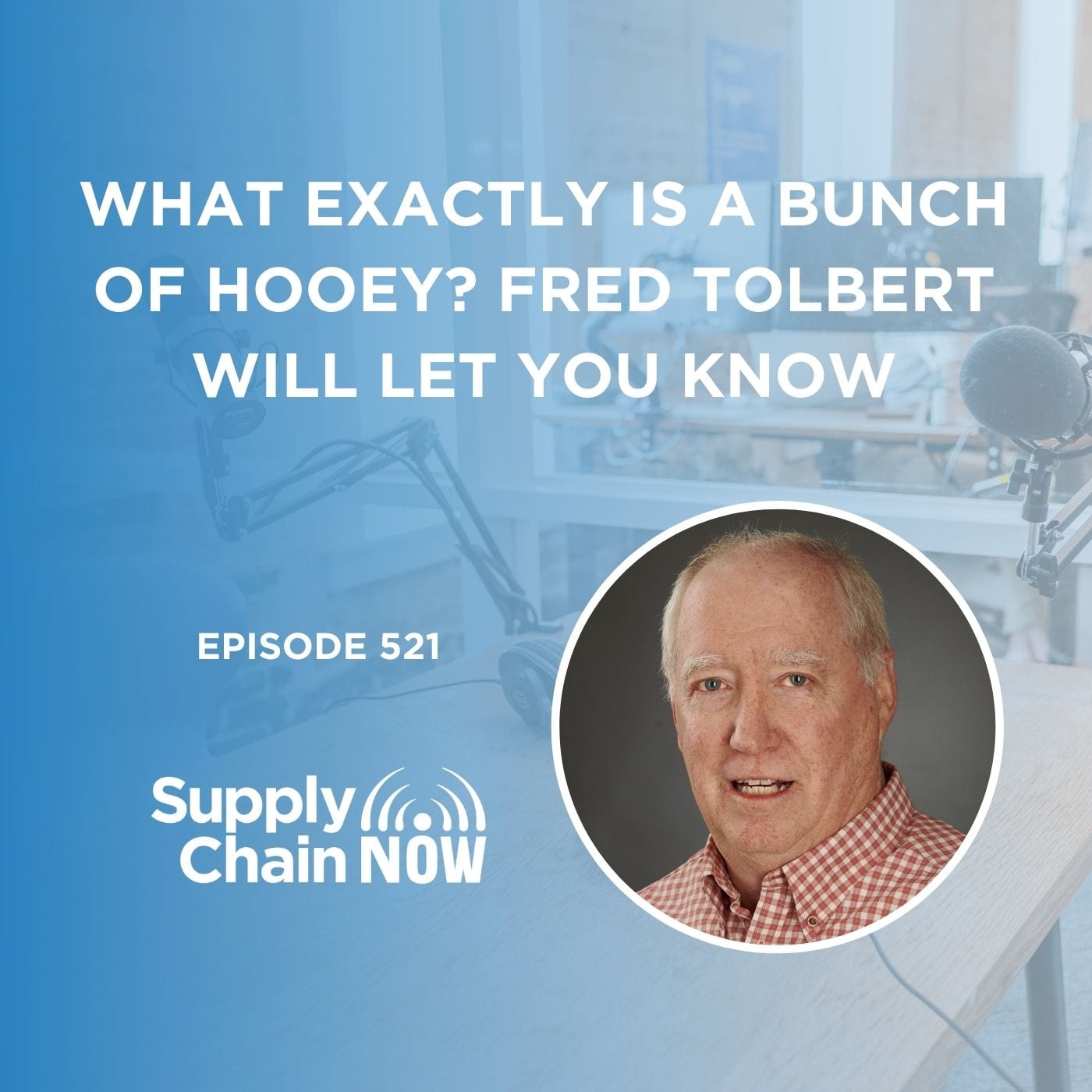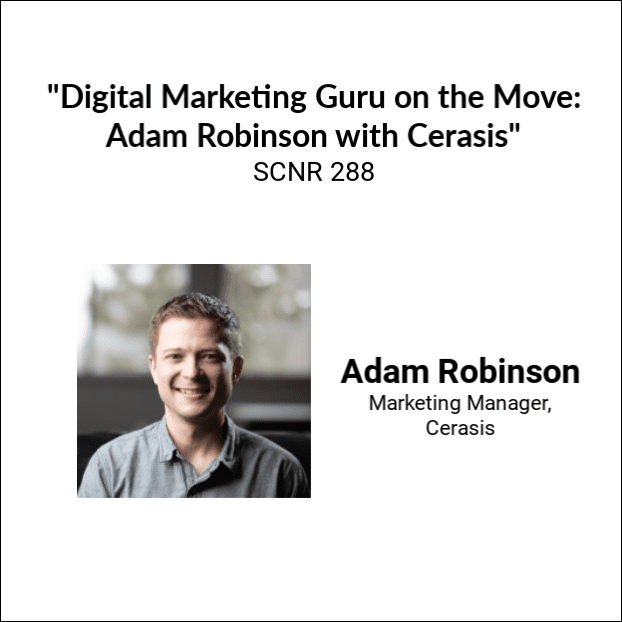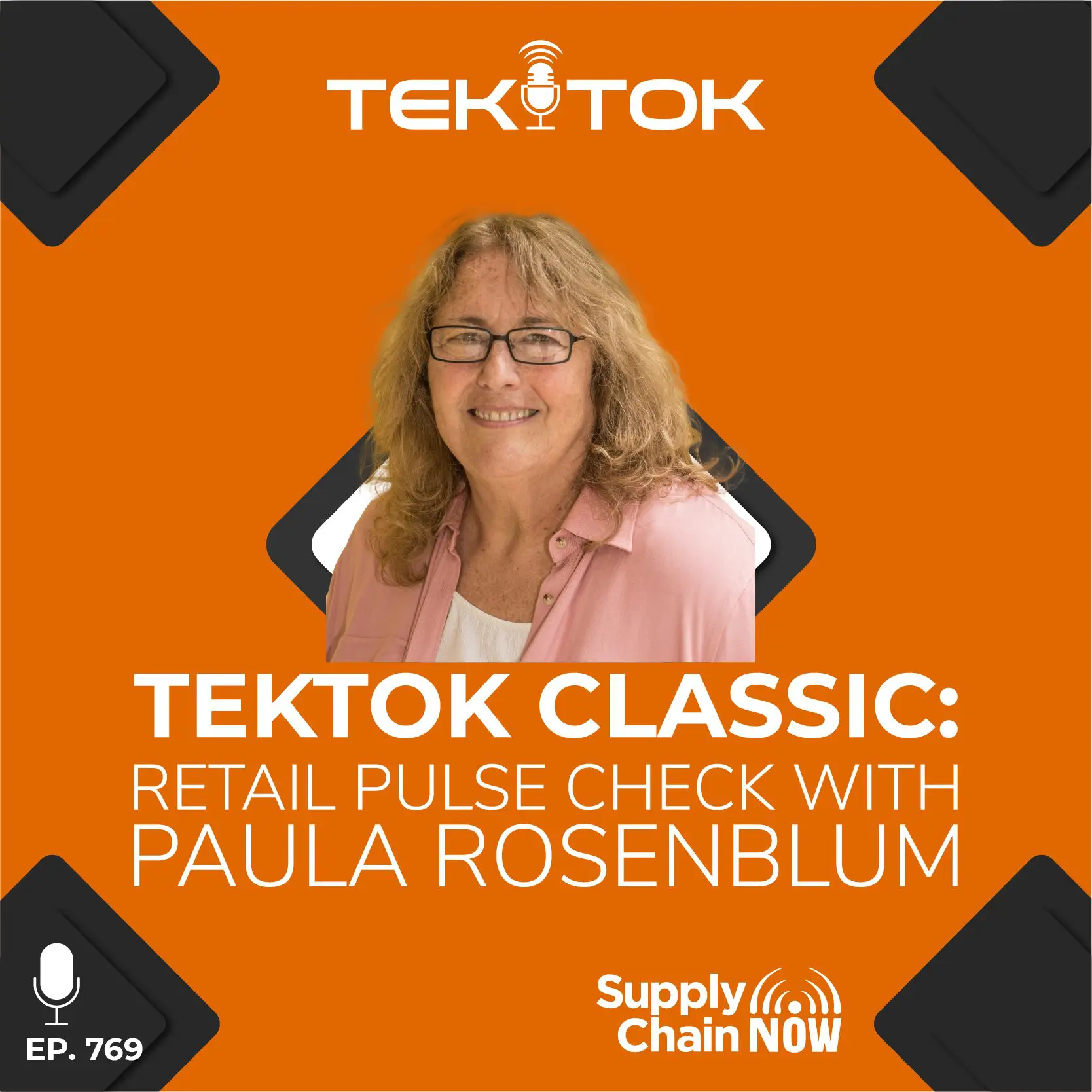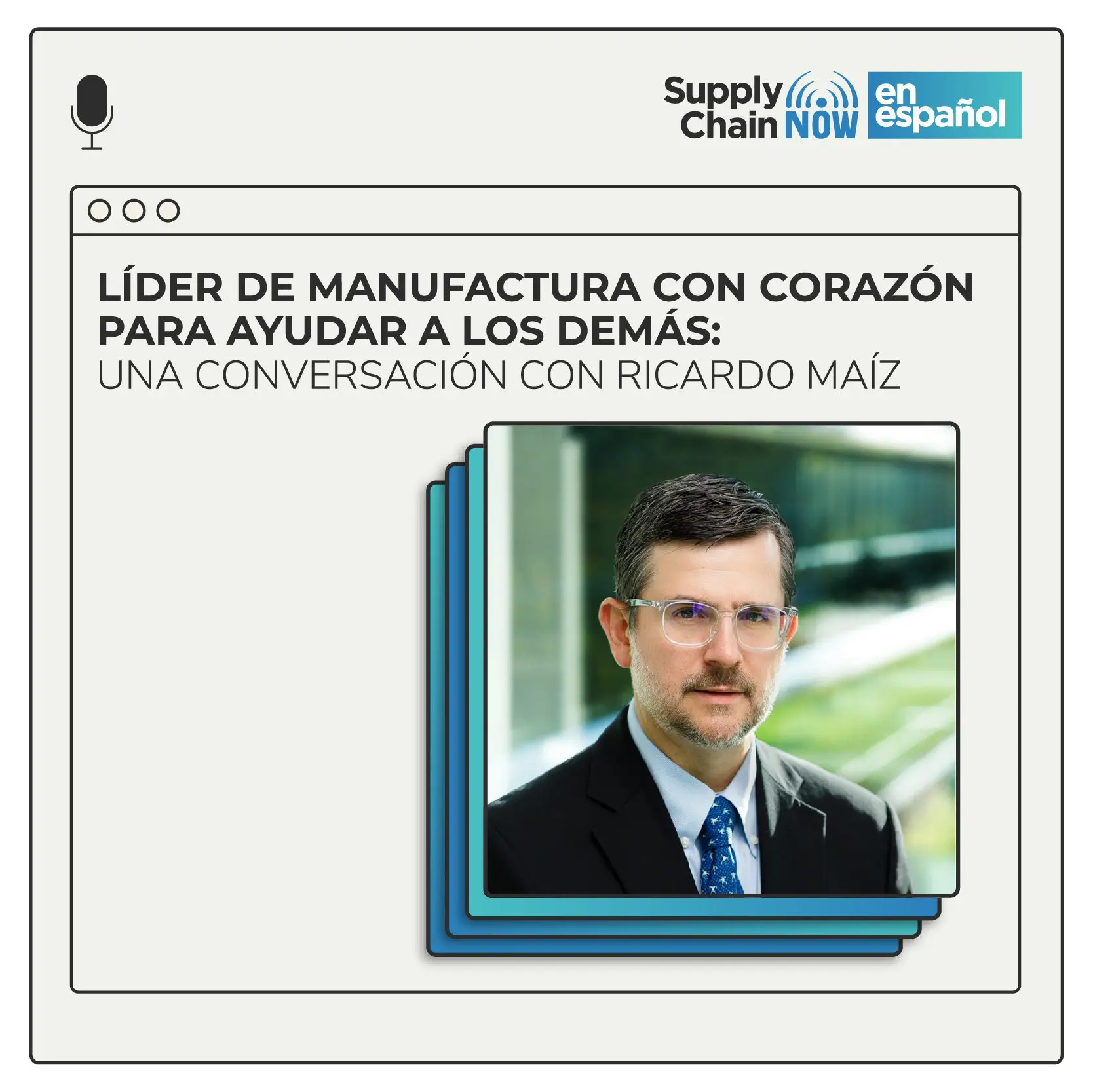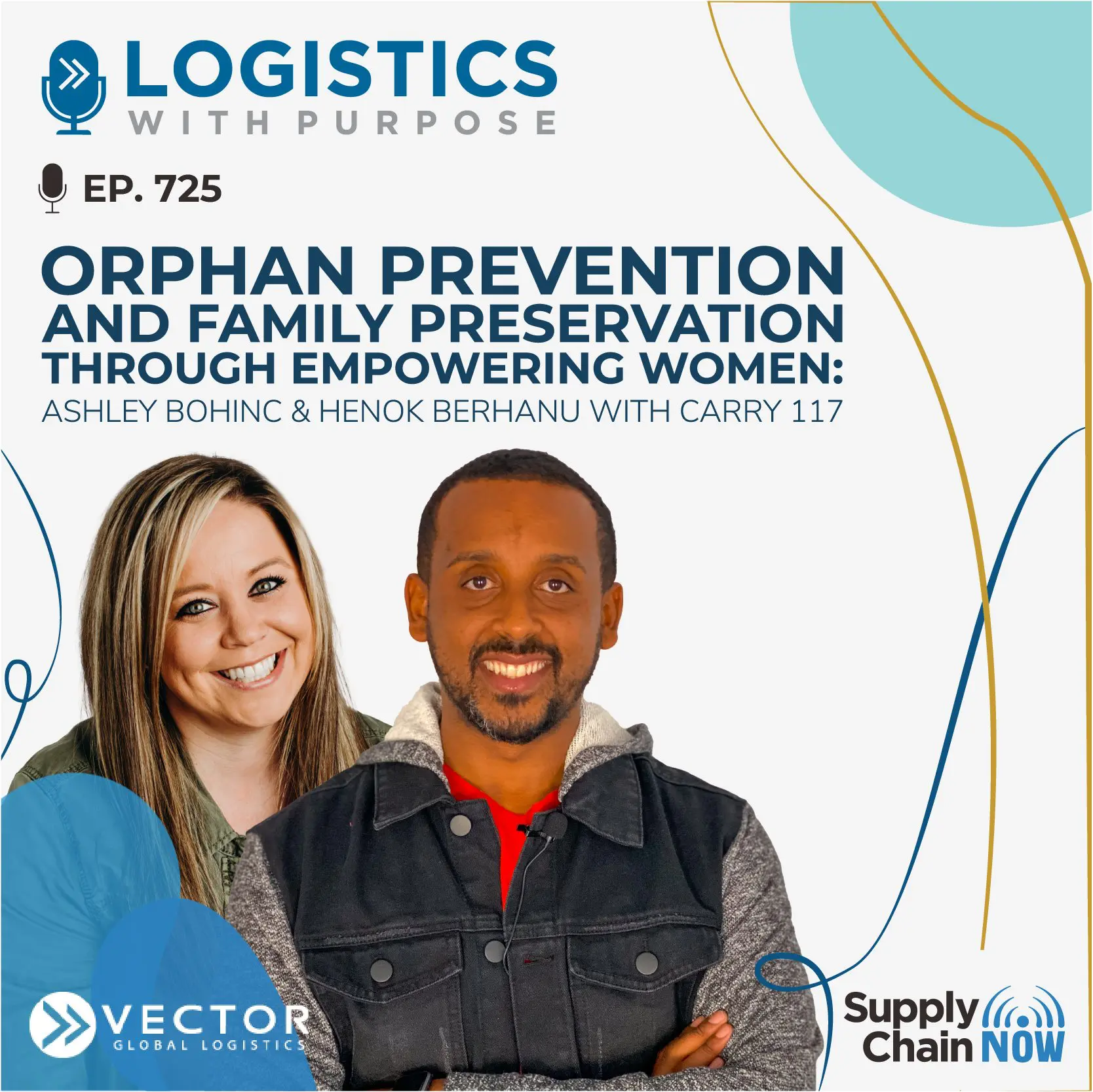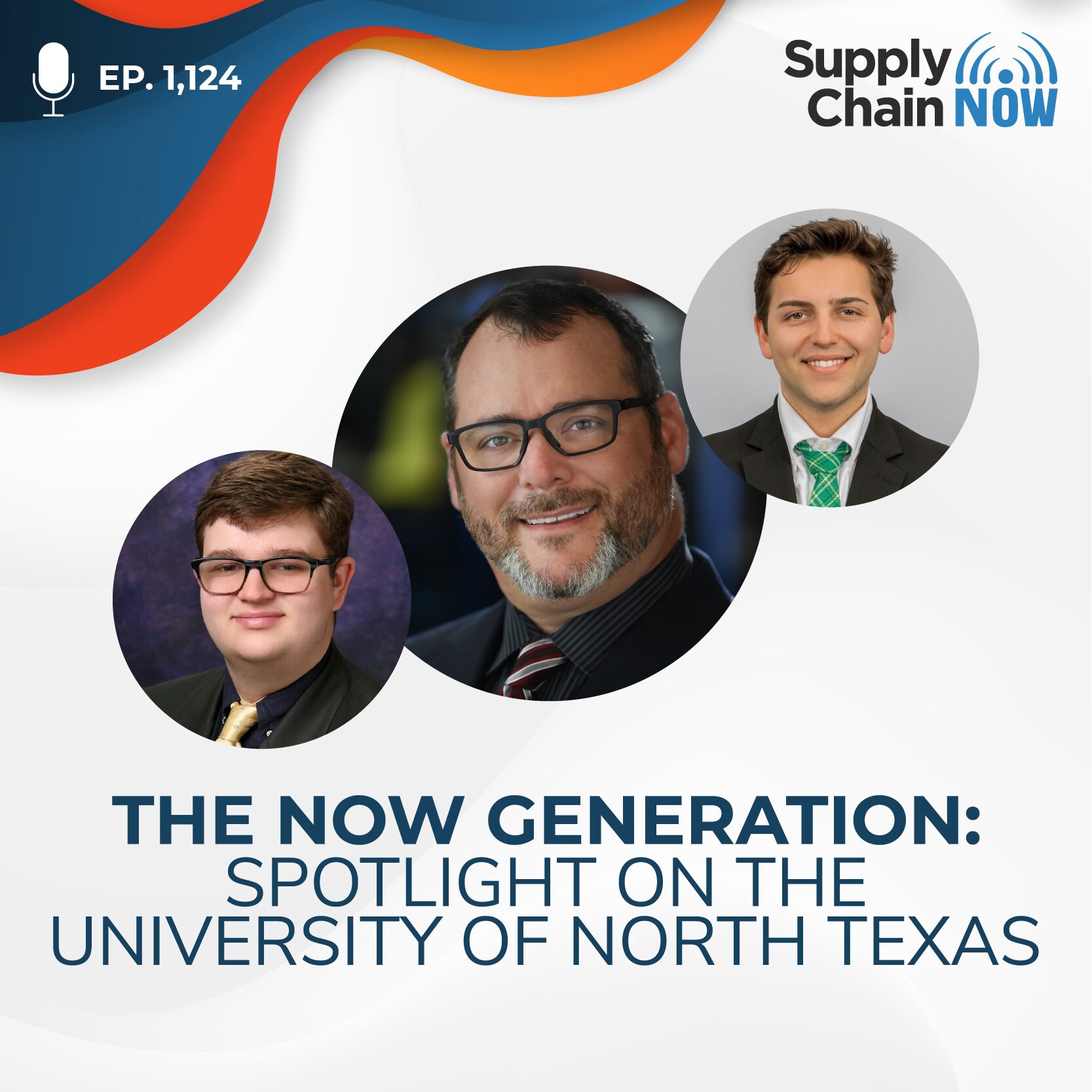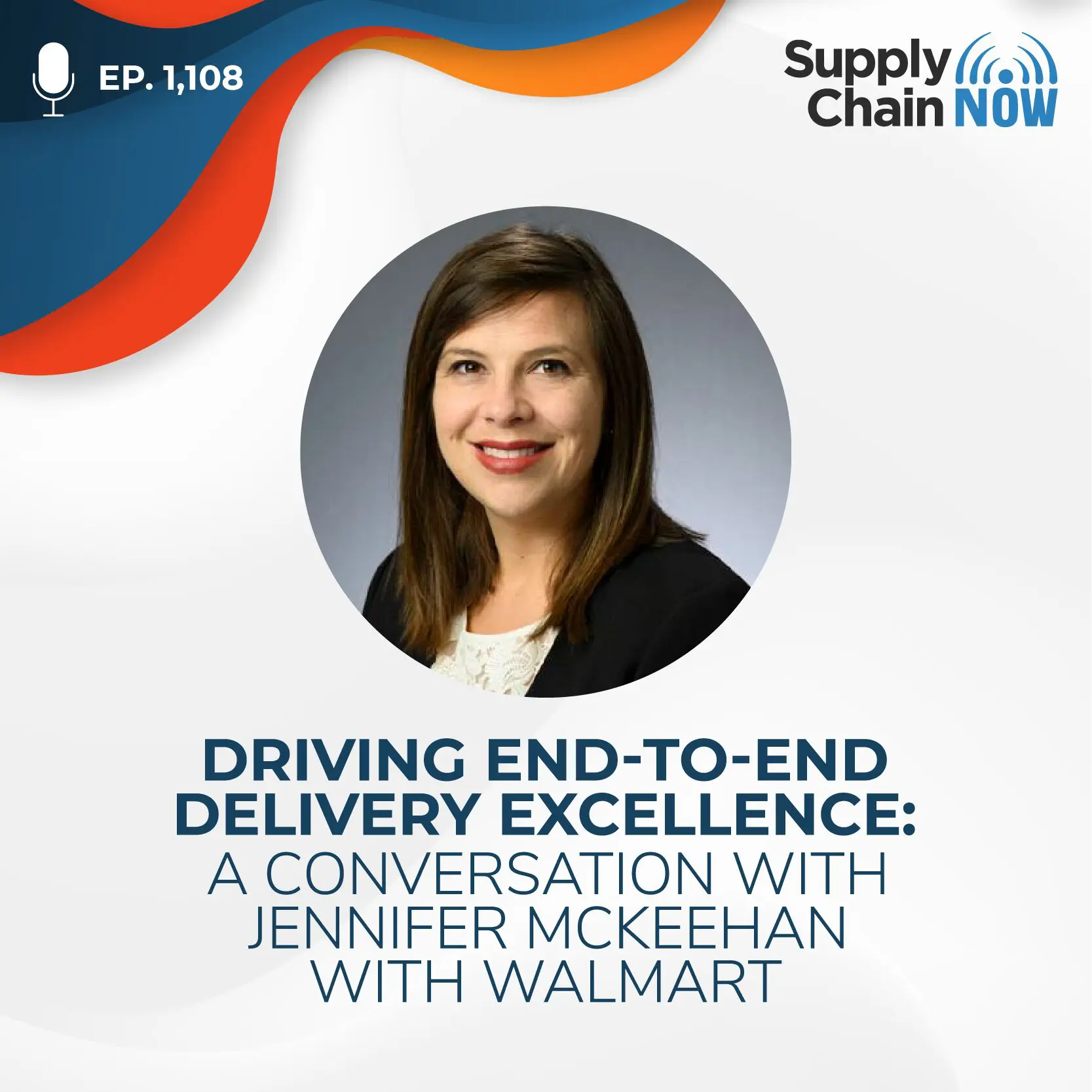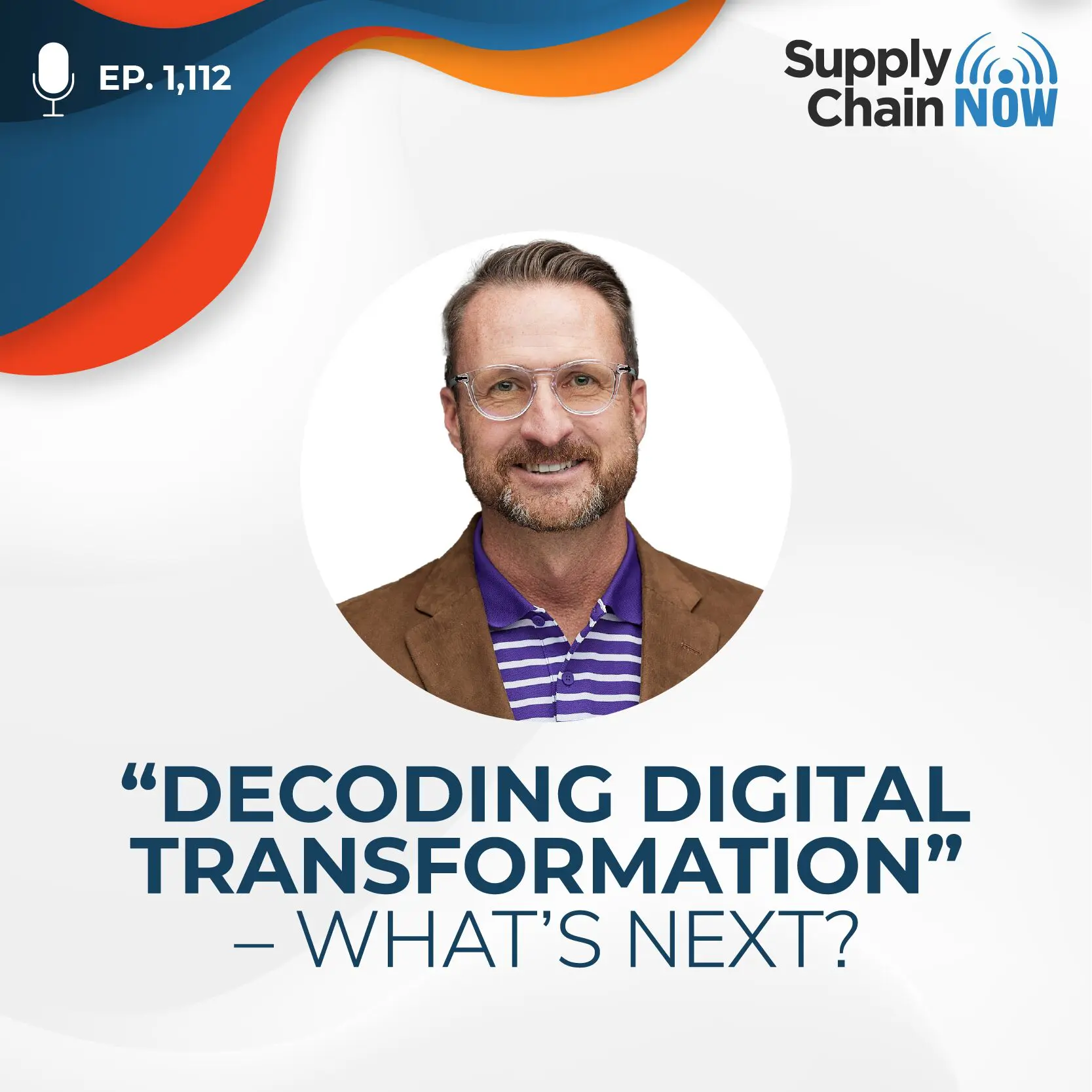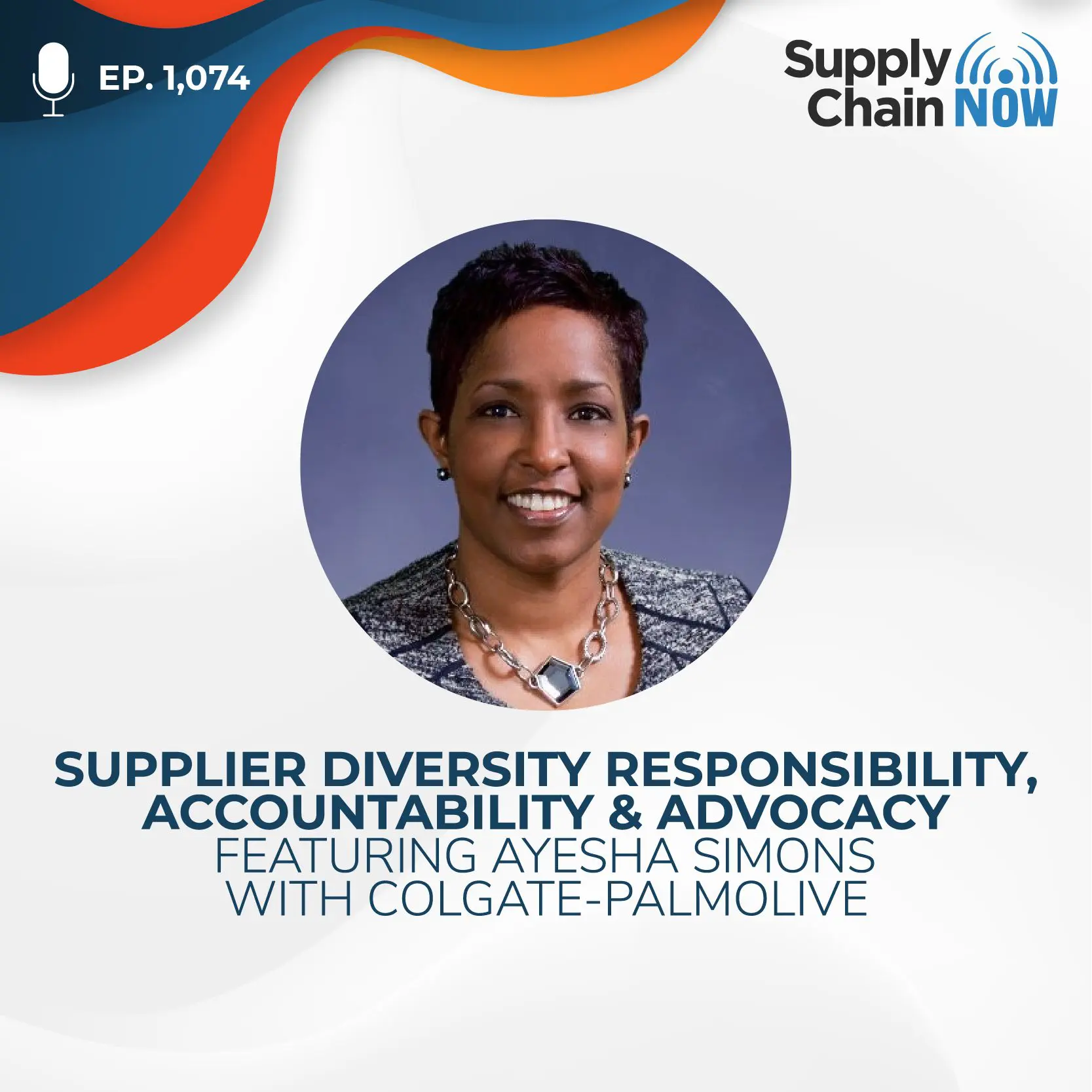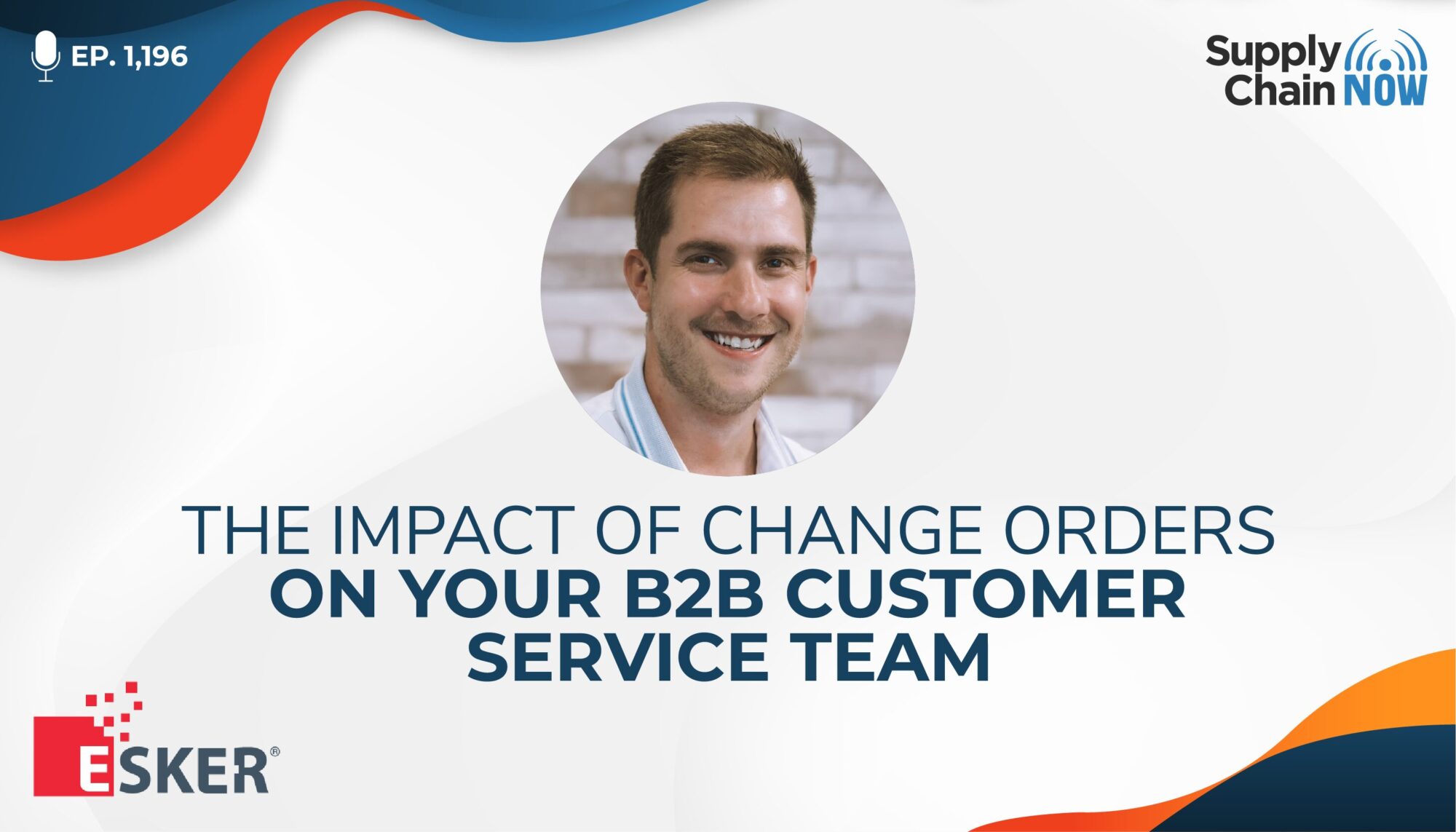
Companies are always going to receive change orders because the demand is constantly changing. They happen. So you have to build a process around them.
-Graham Smith
Episode Summary
By industry definitions, a change order is when a customer requests a change to a parameter on an existing order. It will often change the requested delivery date, quantity, maybe the product itself, requesting an alternative. As today’s guest shares, they regularly happen, and you have to build a process around them.
In today’s livestream-based episode, Business Development Manager with Esker, Graham Smith joins hosts Scott Luton and Greg White to discuss the complexities of change orders in B2B customer service and the impact they have on customer satisfaction and business operations. Listen in and learn:
- the necessity and challenges of managing change orders effectively
- how to adjust policies and practices related to managing change orders and employing modern technology to streamline the process and improve the overall customer service experience
- the importance of aligning people, process, and technology to execute operations, and much more.
Episode Transcript
Intro/Outro (00:03):
Welcome to Supply Chain Now, the voice of global supply chain. Supply Chain Now focuses on the best in the business for our worldwide audience, the people, the technologies, the best practices, and today’s critical issues, the challenges and opportunities. Stay tuned to hear from those making global business happen right here on Supply Chain Now.
Scott Luton (00:32):
Hey, hey. Good morning, good afternoon, good evening, wherever you are. Scott Luton and Greg White with you here on Supply Chain Now. How are you doing today, Greg?
Greg White (00:41):
Just hopping down a bunny trail. I’m doing great. How are you?
Scott Luton (00:45):
We’re doing great, man. It is gorgeous here once again, and we’ve got a wonderful discussion —
Greg White (00:50):
And here we are locked inside, is that what you’re trying to say?
Scott Luton (00:53):
Maybe. Maybe. Well, you know what? If we got to be inside, we might as well have outstanding conversations with folks out there doing great things in the industry. And of course it’s always neat —
Greg White (01:03):
Undoubtedly, yes.
Scott Luton (01:05):
Yes, we’re looking on the bright side, right?
Greg White (01:07):
Yes, let’s go with that.
Scott Luton (01:10):
Let’s go — well, hey folks, we continue one heck of a stretch of programming with our conversation here today is we’re going to be talking about change orders, which, you know what, if you don’t manage them effectively, they can wreak — wreak — is it wreak or wreak havoc? Wreak havoc?
Greg White (01:27):
It’s wreak havoc.
Scott Luton (01:29):
Wreak?
Greg White (01:29):
W-R-E-A-K.
Scott Luton (01:31):
Thank you very much.
Greg White (01:33):
Wreak, wrought, have rot.
Scott Luton (01:35):
Ah, OK. Well back to my —
Greg White (01:37):
I know that’s the hard part, the wrought part. That wrought havoc, not wreak havoc —
Scott Luton (01:42):
Wrought — man, you just blew my mind.
Greg White (01:45):
And wrought havoc.
Scott Luton (01:46):
Well, back — so back to my point. If we don’t manage these change orders effectively, they can wreak havoc on a team and a business. And then today we’re going to dive in a little more into that. But in particular, Greg, what I’m looking forward about to here today is we’re going to be talking with a — about really in the B-to-B customer service environment. Some new ways of really leveraging technology to not only better manage change orders, but drive overall optimal performance. Greg, it should be a great show, huh?
Greg White (02:16):
Yes, agreed. Yes. And you know, with one of our favorite groups, our friends at Esker, and some people honoring November. So, stand by for that.
Scott Luton (02:29):
Oh, I thought you were going to say, stand by and listen up, Greg, and —
Greg White (02:33):
Oh, and listen up.
Scott Luton (02:34):
There you go.
Scott Luton (02:35):
All right. Now, we’re checking the box. Checking the box. And I’m getting some English lessons from our production team as well.
Greg White (02:40):
I see that. Thank you, Catherine.
Scott Luton (02:42):
Big thanks to Catherine and Amanda behind the scenes soap. So —
Greg White (02:44):
See, they said wreaked.
Scott Luton
Yes.
Greg White (02:46):
But it’s not wreaked. It’s wrought.
Scott Luton (02:48):
You know what? I’ll defer to everyone else on the English language. But I do want to welcome in our outstanding guest here today, looking forward to talking with Graham Smith, business development manager with Esker.
Scott Luton (03:01):
Graham, how are we doing?
Graham Smith (03:02):
Doing well. How are you doing, Scott? How are you doing, Greg?
Greg White (03:05):
Good. Welcome aboard, Graham.
Scott Luton (03:06):
Appreciate that. No, we’re doing wonderful. So, do you want to weigh in on the hard hidden English topic of wreak versus wreak?
Graham Smith (03:14):
Yes, I would say wreak havoc.
Scott Luton (03:16):
OK.
Greg White (03:17):
Yes, unquestionably.
Graham Smith (03:17):
But I’m not an English major, so I could definitely be wrong.
Scott Luton (03:21):
Well, let’s shift gears here. Let’s talk about a seasonal topic before we get into all the good stuff we’re going to be getting into here today with you, Graham. So, here’s some history for you on this day, in 1721, the governor of the British Colony of Connecticut declared the day as a Public Thanksgiving. And then about 50 something, 67 years later, after getting families together for 67 years for Thanksgiving, Elijah Craig distilled the first bourbon whiskey from corn in Bourbon County, Kentucky.
Scott Luton (03:55):
So, combining those two historical milestones, I want to start by asking both of you, and start with you, Graham, are there any traditional or particular adult beverages that you’ll be enjoying with your family on Thanksgiving?
Graham Smith (04:09):
You know, we’re in Wisconsin, so it’s going to be Spotted Cow.
Scott Luton (04:13):
OK. It’s going to be what?
Graham Smith (04:14):
If you haven’t had it — Spotted Cow. Have you ever had it?
Scott Luton (04:17):
No.
Graham Smith (04:18):
It’s anybody who comes to Wisconsin gets someone they get here.
Greg White (04:22):
Do tell.
Graham Smith (04:22):
I’ll try to send you some, Scott.
Scott Luton (04:24):
OK. So, what is it? I hate — is it a brand?
Graham Smith (04:28):
Each town — so, it’s a beer from New Glarus Brewery, which is about, I don’t know, 45 minutes away from Madison, but you can only get it in Wisconsin. So, typically when I have family coming in, when I have friends coming in, they’re ordering right up. Exactly.
Scott Luton (04:47):
Spotted Cow. OK. We’re going to look that up. And yes, I’d love to procure some of that —
Greg White (04:52):
Definitely we’ll have it on order before we’re off air, guaranteed.
Scott Luton (04:54):
That’s right. So, Greg, how about you? I don’t know if you can top Spotted Cow.
Greg White (04:59):
Well, first of all, I’d like to start by giving thanks for Elijah Craig. His amazing distillery that still operates, BY the way, if you’re not a bourbon drinker, you may not know that, but it’s ebbed and flowed and it is ebbing again. So — or whichever way is up. It’s good. Again, wine. That’s what my dad brings to Thanksgiving, is the wine. So, he doesn’t really cook and somebody needs to bring the wine. So, thanks, dad.
Scott Luton (05:27):
That is an important ingredient for happiness at a family gathering. So, I look forward to doing the same —
Greg White (05:32):
Well, he really does a good job at — I mean, of picking the right wine to pair with turkey and all of that delicious saltiness and yummy food.
Scott Luton (05:43):
Yes, man. Now, we’re starving, Graham and Greg as always. So, we got a lot of good stuff to get to. So, we’re going to move on from the good Thanksgiving food and spirits discussion. And as Greg mentioned, to give thanks to old Elijah Craig for introducing that.
Greg White (06:00):
Particular when you say it since he’s from the south.
Scott Luton (06:03):
I guess. But Graham, you know, as Greg mentioned on the front end, we have enjoyed a long running series of discussions with our friends at Esker. Appreciate what you are doing out in industry. But for our new listeners and folks who may have missed those earlier conversations, let’s add a little context to our gathering here today. So, tell us in a nutshell what Esker does and a little bit about your background, Graham.
Graham Smith (06:26):
Yes. Yes, definitely. And I’ll actually — I’ll start with me, right? So, why am I here today? I specialize with helping manufacturing and building materials companies to improve customer relations and eliminate any kind of productivity waste by leveraging A.I. automation in their customer service groups which leads us to that hot topic of change order management.
Graham Smith (06:47):
And then, you know, kind of, who is Esker in a nutshell? So, Esker has focuses with A.I. automation across the procure-to-pay segments, as well as the order-to-cash sides of the house. So, any kind of back-office operations that have many or repetitive steps, Esker can step in, help you to eliminate some of those manual tendencies within those processes. I’ve been with Esker for about seven years now. Absolutely love it here, and excited to talk about change orders today.
Scott Luton (07:14):
Graham, love that. And Greg, if there’s anything that we love talking about here and love talking with people that are doing this out in the industry is eliminating those boring, repetitive, manual stuff that really — who likes doing all that stuff, Greg?
Greg White (07:29):
Yes, that too. I was talking about the money, but to me it’s all about the dockets [phonetic]. So — but yes, of course. I mean — and there’s money in everything, right? Repetitive, boring, slow, unreliable, all of those things are — they cost you more than just the delay in capital and capital costs. It’s a really worthy cause to get all this stuff squared away.
Scott Luton (07:56):
Well said. Well said. Well, so speaking of, Graham, I appreciate that context on the front end. Let’s talk about some of what you’re seeing out in the industry. What are you seeing business leaders prioritize or struggle with? What are some of the things you’re seeing?
Graham Smith (08:10):
I focus on the customer services side of the house. So, really, it’s a couple of things. It’s getting those orders in efficiently, right? There’s oftentimes a segment of your customers that has the highest cost to serve and probably produces the least amount of revenue. How are they sending those orders in? Oftentimes it’s PDF. Oftentimes they’re sending an e-mail that says, hey, I need 36 roles of X, Y, Z by Tuesday, which typically means there’s a lot of manual intervention that’s necessary, right?
Graham Smith (08:38):
And then other transactions as well. Any kind of customer inquiries, whether you’re requesting status, if you have billing questions, product questions, typically fairly manual process and even creating quotes or dealing with claims and discrepancies.
Scott Luton (08:51):
Greg, does any of that sound familiar?
Greg White (08:53):
Yes, painfully familiar. Yes, sent me flashbacks. Yes, man. Flashbacks to the ’90s too. So, I mean, some of these people just need to like welcome to the 21st century, right? But, yes, absolutely, all of that manual entry. And you think about the range of type of companies that people work with. Some are more sophisticated, some are less sophisticated, some you can’t even use the word sophisticated. And so, you get a varying level of performance there, and it’s really difficult. And like Graham just said, it’s really costly on your team to fulfill against or even pay against a lot of times.
Scott Luton (09:32):
Yes, good stuff. And manual intervention, if that’s not a show on the A and E, it should be. So, Graham and Greg, I want — where we’re going to go next is kind of getting more focused on the topic at hand, and that is change orders. So, Graham, to make sure everybody’s with us is tuned in, they’re watching, or listening, or you name it. Again, a little more context. Let’s define what we’re talking about with change orders. Help us out there, Graham.
Graham Smith (09:54):
Definitely. Definitely. So, essentially when we say change order, what we mean is when a customer is requesting a change to a parameter on an existing order. So, often that changes requested delivery date, quantity, maybe the product itself, requesting an alternative. Again, my background is, kind of, in manufacturing and building materials.
Graham Smith (10:14):
So, in manufacturing, that might be caused by demand planning, might be caused by their customers, right? And then on the flip side with building materials, a lot of times you’re dropping that product off at a site, there’s delays on that project. And the framers haven’t gotten in yet, well then you probably don’t want four pallets of shingles just sitting in the weather for a three-week period, right?
Graham Smith (10:36):
Long — to deliver.
Graham Smith (10:37):
Yes, exactly.
Scott Luton (10:38):
So, Graham, I can relate to some of what you’re sharing there. A big part of my background is manufacturing, and in particular sending product out to construction sites. For me, it wasn’t home as much as it was new retail centers, bus stations, even church construction. And to your point, you don’t want stuff sitting there for a variety of reasons, including, because they get misplaced really quickly. Can you relate to that too, Graham?
Graham Smith (11:03):
Absolutely, absolutely. It’s either you don’t know where it is, or unfortunately, theft is a major concern, you know.
Scott Luton (11:10):
That’s right.
Graham Smith (11:11):
I lived in California about 10 years ago, and they’re just developing new laws because people would go in and steal the copper right after the electrician went in there. So, there’s a lot of risk associated with having a product just sitting there, whether that’s because of the weather or, again, because of theft.
Scott Luton (11:26):
Yes, and of course theft is on the rise. We’re seeing it across. Folks stealing cargo, stealing freight, you name it. Greg, when you heard his definition of change orders and a couple of those examples that I bet make a lot of sense to some folks out there, whether you’ve been in the construction building materials industry or not. Some of your thoughts, Greg.
Greg White (11:42):
Yuck. You know — I mean, I think it’s something that happens but it’s, you know, so disruptive when it does. And the reasons for it are — kind of, go back to that — those stages of sophistication in a lot of cases. And also, to the industry, I mean, to — specifically to the construction industry. It just happens sometimes, right? And things get out of order and they just have to happen. But they’re so disruptive, and — I mean, we just keep going back to this so costly.
Greg White (12:13):
So, you have to either work to prevent them very diligently, which sometimes you’re not in control of or respond really quickly and efficiently when they inevitably have to happen.
Scott Luton (12:24):
Yes, absolutely. Well, you know, that’s a great comment there, Greg. And Graham, let’s continue going down the impact path of these manual change orders. And rather than, you talked about a couple of different ways of how this impact manifests itself. But the impact it has on the teams themselves, in particular B-to-B customer service teams. What are you seeing in there, Graham?
Graham Smith (12:45):
Yes, and I want to touch on something that Greg said as well, that oftentimes these change orders are inevitable. Whether that is some sort of outside change, maybe that’s the end customer. Maybe that is something with manufacturing. Companies are always going to receive change orders because the demand is constantly changing.
Graham Smith (13:06):
Oftentimes, I mentioned it earlier, that change order might be coming in the body of an e-mail. Hey, you know, P.O. number 123, I need to change the delivery date to Tuesday the 3rd. Oftentimes that’s a manual process. I need human eyes to look at that, decipher what that says. Now, I need to go into the ERP. I need to bring up that old order. Hopefully I have an order number or something that I can search by in that e-mail. If not, I might be looking through a list, reviewing by status. Going in there, making those alterations, maybe confirming with the warehouse, maybe confirming with my manufacturing operations that we can do this. We could deliver by this date. And then communicating back with my customer to say, hey, actually we already have that on a truck, so we’re not going to be able to change that. Or, hey, we don’t have the capacity to fill this. Would you like an alternative product or can we extend that date?
Scott Luton (14:02):
Yes. So — and Greg, one of the points he’s making there is change orders are — they’re — I’m not calling them necessarily evil, but they come with —
Graham Smith (14:10):
They are.
Scott Luton (14:11):
Thank you. I’ll let you say it.
Greg White (14:14):
They are.
Scott Luton Scott Luton
When it comes with making customers happy, right, and chain and where — we can be — consumers can be very fickle, right? They want certain things and sometimes they change their minds, and we’re out there to please them and make them into create raving fans. Greg, your thoughts?
Greg White (14:28):
Yes, emphasis on evil. Well, honestly, I’m dealing with a change order right now that was initiated by the supplier. So, order went in fine. They — I don’t know, got super inefficient internally. They had to change delivery date and now they’re here, of course, while we’re on air to deliver, when they didn’t schedule with me to deliver. They just announced at 11:00 last night that they would be delivering sometime today. So, it’s a well-known retail brand. Something about ceramic containers on a farm — in a building on a farm. And I would strongly suggest that you decipher that and decide to never buy anything online from them.
Greg White (15:10):
But I mean, that — it is — it’s incredibly disruptive to have these kinds of things happen. And ultimately, as we just discussed here, it’s about the customer satisfaction. And these days, if you can’t accommodate the customer, they will find someone who will, because everyone is competing against Amazon or someone like that these days. And the breadth of places that you can get, the breadth of products that any company can provide exists in so many places. So, you have to be both, again, preemptive and responsive, but also very cognizant of that customer experience.
Scott Luton (15:46):
Right. Well said, Greg. And, you know, I appreciate the case — the business case or the value proposition or the, you know, kind of the reasons why we’ve got to lean into a better way of taking care of these change orders. Because they’re part of doing business, and we need to act on them and execute on them, take care of customers while making it easier for our teams and put them in more successful — better positions to be successful.
Scott Luton (16:11):
And that’s what we’re going to, kind of, move to next, Graham, because there is a better way. So, we want to pick your brain. I think you’re — we’re going to walk through three different strategies that you’re seeing successful companies really, you know, mitigate the impact of these change orders. And again, with my favorite part of this whole conversation, I love taking care of customers, but I love when we can do some really cool things to, again, make our team’s day easier so they can go out there and hit home runs for their customers. So, Graham, what are you seeing? What’s the first strategy?
Graham Smith (16:43):
Right, right. So, I think it all comes down to people, process and technology. We have an eBook out called “The Digital Guide to People, Process and Technology”, right. And there’s always going to be those three pillars. If you don’t have one of those pillars, that is just going to fall, right.
Graham Smith (16:58):
So, the first thing that I want to touch on is really changing those policies that surround change orders and the behaviors associated with those. I think the old saying of the customer’s always right, it’s getting phased out because sometimes you can’t fulfill the requests of those customers. And one thing I’m going to add into this conversation last minute as well is order cancellations. So, I was talking to a building materialist company, I was on site two weeks ago, and they still have customers that will send out four orders to four different vendors, and whoever can fulfill that first, they are going to take that order and they’re going to cancel the other three.
Graham Smith (17:32):
Because, to Greg’s point, if you can’t fulfill it, somebody else will, right? And I think, kind to that philosophy during the Covid-era really changed because of all the impacts and all the strain on the supply chain of I don’t have the loyalty that I used to. So, whoever’s going to do what I want them to do, that’s who I’m going to choose as my preferred supplier, right. So, changing some of those policies helps to make sure that you can efficiently manage those change orders. Because there’s so many effects throughout the entire organization, it’s not just customer service, it’s not just a warehouse. And there’s also a lot of siloed breakdowns between there, right.
Graham Smith (18:13):
So, I was talking to a company, this was probably a month ago, and they will allow a change order until that order goes on a truck. Now, if they’re getting ready to load that truck and they say, hey, we need to change this, they’ll say, OK, because it’s not on that truck. Well, now, maybe that’s already on a forklift. I’ve already taken it out of the yard, I’ve taken it out of the warehouse, well now I need to put that back. So, the cost of that change order is exponentially higher than, say, if you had a 48-hour cutoff time before we’ve done any of the planning to actually transport that item.
Scott Luton (18:46):
Yes. Graham, that makes a lot of sense. Greg, starting with calling time out, making sure we’re reevaluating policies and not just following policies we created in 1982. You see, I’m picking on here today. Greg, your thoughts?
Greg White (18:59):
Yes. Well, Graham has already enunciated that change orders are a fact. They happen. So, you have to build a process around them. You can’t be scrambling every time a change order happens. You have to expect them. You have to plan for them. You have to provision for them. Build processes, and of course support it with technology, but also have your people ready to manage these situations because they are exceptional. There are times when it’s going to fall on the edge of can technology even help us with this sometimes, right?
Greg White (19:29):
But yes, to the policies that, you know, that get you there, whatever your customer service policy is, you have to be able to provision for that. And Graham, your point, you have to accept the cost of that. If you’re willing to wait until it’s ready to go on the truck or it’s even on the way to the truck, right, you’re going to have to recognize that’s costly. And you’re going to have to deal with that too, a policy decision around that is necessary as well. What is our cutoff as, Graham, you were talking about?
Scott Luton (19:58):
Yes. Graham, in that example you used, was that a new policy change that they introduced because the business had evolved and changed or what?
Graham Smith (20:06):
It’s just something that they’ve always done. And I think the unfortunate truth is a lot of companies do scramble once they receive that change. They don’t have necessary policies in place, or another thing that I was going to touch on for one of those strategies is that they’re not willing to communicate or tell their customer, no, I can’t do this.
Scott Luton (20:24):
OK. Well, let’s go there. That is — that communication and how we’re communicating, that’s the second strategy I think we’re going to dive into. So, tell us more there, Graham.
Graham Smith (20:33):
You know, I think over the last couple of years, everybody’s gotten excited about this Amazon-like experience, right? I can order something online, I don’t have to talk with anybody. I know exactly when it’s going to be there. I can track it. And Amazon isn’t going to tell me no, right?
Graham Smith (20:47):
But unfortunately, in B-to-B customer service, you might not have that level of sophistication, either on the supplier or the customer side to be able to find that information easily. Which means oftentimes companies need to be setting better expectations with their customers. This is what we do and do not allow. And then also communicating, hey, I know that you requested this change by Tuesday, but unfortunately, I can’t fulfill that. How’s about this alternative product? How’s about pushing this out a week? Can you take a lower capacity?
Scott Luton (21:17):
And Greg, there’s an old phrase I like to share from the food industry. A business leader said, hey, give me good news fast and bad news faster. And that’s kind of, on a related note, to what Graham’s talking about. About — we got to communicate the good and the bad, and if we’re communicating the bad, we got to give them options or at least communicate how we’re remedying the situation. Now, all that and many other things roll up into an effective communication strategy. Your thoughts, Greg?
Greg White (21:43):
Yes, my thoughts are honestly that there is no excuse for any size business not to be able to do this technologically. I mean, it is so ubiquitous, the ability to set these policies, to train your people, and to have technology support this. If you are still living in the stone age as some of the companies Graham described, you’re about to go extinct because the expectations are now universal, not just among consumers, but among businesses. And the reasoning for that is very good, and that’s because we’ve been doing e-commerce since 1996, right, almost 30 years.
Greg White (22:21):
So, if you’re behind — you’re 30 years behind the curve, how much longer do you expect to survive? I mean, you got to do something. Step up to something here. I mean, if you can’t get yourself online and you can’t meet a reasonable lead time promise and reasonable, by the way, is defined by your consumer, yes, you got to dig deep, folks.
Scott Luton (22:45):
Dig real deep. All right. So, there’s good — and Greg, it’s like you’ve got a crystal ball like you always do because you know where we’re going next. Because we got policies, which was the first strategy that Graham — we’ve all spoken to. Communication, which is the second one. And then thirdly, automation, Graham. So, tell us more there.
Graham Smith (23:04):
Yes. And Greg nailed it again, right, because unfortunately, businesses can’t operate like they’ve always operated before, which is exactly why I’m having these conversations with suppliers about how they can better manage customer orders, customer change orders, enhance the communication with those customers, and deliver what the customer is asking with a lower cost to serve, right, and a higher accuracy, right?
Graham Smith (23:29):
So, in my world, what automating the change order process looks like. I touched on earlier that oftentimes these change orders are coming in are free text e-mail. Maybe they’re coming in via telephone. You know, oftentimes there’s not an EDI coming out that says, hey, I need to change these. That can be automated. Oftentimes, it’s a pretty manual step. So, being able to leverage something like natural language processing, a large language model. To be able to decipher what they’re asking for and then have something that can do those lookups into the ERP, and then facilitate those transactions, turn that into more of a OneTouch process so that you’re not flipping through multiple screens. You’re not looking at additional third parties to then be able to make those changes, because again, that’s just going to lead up that cost to serve and take a lot of time.
Graham Smith (24:18):
One of my customers is looking at our change order functionality right now. They already automate the entry of the orders with Oscar, which has saved them an incredible amount of time. About 70% of their day now is spent just changing the existing orders. And those orders oftentimes get changed between one in three times, which means that a customer service rep needs to spend five to 10 minutes, three times after the order’s already been entered, which is a lot of time. A lot of money that’s just being wasted on making changes.
Graham Smith (24:55):
And if you can reduce that time by 30 to 70%, now you can upskill those individuals to focus on more planning activities. To set better expectations with your customers. To review what shipments are going out. To be able to better learn about potentially alternative products or open them up to some outselling opportunities for some of the accessories that might go with some of those products.
Scott Luton (25:22):
Right. You can automate all sorts of different things, leveraging modern technology these days. But at a minimum, Greg, automating the blocking and tackling so you can free up your team’s time to focus more on the more human intensive aspects of an operation or customer service or what have you. Your thoughts, Greg?
Greg White (25:41):
Yes, set up your technology to do technology things, so humans can do human things, right? I mean, if it’s so repetitive and so rote [phonetic] that you could draw a rule around it or learn about it in A.I. and do it. And let your people deal with the exceptional cases, the exceptional difficulties, the exceptional problems that are out there. Or better yet, as Graham just described, let them do those things that are more profit oriented for the company. Upselling, right? Customer relations, all of that sort of thing that is so powerful and so much more satisfying for humans to do than this repetitive motion stuff, right?
Scott Luton (26:23):
Yes, absolutely. I agree. And I like your demonstration.
Greg White (26:28):
Yes.
Scott Luton (26:28):
That repetitive motion. All right. So, Graham, you’ve covered three strategies here, from the policy side, to the communication side, to the best part. Our favorite part, probably, is the automation and the leveraging modern technology side. And that’s where, you know, you and your team over at Esker is doing a ton of work out there in industry, right?
Scott Luton (26:46):
So, how would you suggest — I’ll tell you, you are efficient today, Graham. We are shooting through a lot of the brilliance you brought here today. But if folks want to start a conversation with you and the Esker team, how would you suggest that — where do you all start most of your conversations?
Graham Smith (27:02):
You know, there’s a couple ways, right. I’m on LinkedIn, add me on LinkedIn, shoot me a message. Happy to have the conversation, right? Go to the website. Check out some of the content that we have there. See if it’s relevant. But I think even before that, ask your people on the ground floor what they’re struggling with. What’s taken the most time? What are some of the responsibilities that they have on their plate that they don’t have the time to get to, right?
Scott Luton (27:25):
Right.
Graham Smith (27:25):
Because I think, you know, that’s the starting ground, and really automating a bad process just makes a bad automated process.
Scott Luton (27:31):
Yes, I see you can relate, right?
Greg White (27:33):
Right. Destroy the company faster is what it does.
Graham Smith (27:36):
Yes, exactly. You know, so, I think the key is understanding some of those challenges, right, and then reaching out, having a conversation with us. You know, you can call our general line. Again, add me on LinkedIn. Shoot us an e-mail. Fill out our contact us form. We’ll ask you some more questions and see if maybe there is an opportunity to automate because the unfortunate truth is you can’t always automate everything, but if that opportunity is there, then it’s worth at least facilitating a conversation.
Scott Luton (28:02):
Absolutely. And you referenced earlier — because folks, Graham and the Esker team brought some resources here today, and this is this digital guide that you referenced.
Graham Smith (28:12):
Yes.
Scott Luton (28:12):
Aligning people, process and technology and action plan for B-to-B customer service excellence. So, you know, what’s the WFM here? What — why would you suggest to folks to check this out, Graham?
Graham Smith (28:23):
You know, a couple of reasons. There are some challenges listed in there that companies are facing. If you can relate with those, then maybe automation can help you. And then also, there’s some stories about some of the successes from being able to automate some of these processes and things to look out for some of those outcomes that you might be able to achieve.
Scott Luton (28:40):
Outstanding. So, folks, check that out. We’re going to drop the link right there in the chat, you’re one click away to checking out that resource and hopefully put into work. And also, we’re going to be dropping Graham’s LinkedIn link there and connect with him. Talk Spotted Cow. Talk — you love to fish, right?
Graham Smith (28:58):
Yes.
Scott Luton (28:58):
We got word — we’re getting some fish and best practices in the pre-show, you name it. And of course, how to streamline and put your team in a better position to find success. And Greg, when you think through our conversation here today, what’s your singular favorite takeaway that Graham has brought?
Greg White (29:15):
Well, just that there’s hope that even in a situation where virtually every order is an exception, as the one scenario where he described, you can still be better and save a pile of money, right? And you can plan for it, and provisioned for it, and align your people and your processes and your technology to make sure that you execute even in a highly disruptive environment as effectively as possible.
Scott Luton (29:40):
Well said. Well said, Greg. Well said, Graham. Folks, as we mentioned, the links there to the resource. We also encourage you to connect with Graham, bring your fishing stories, bring your supply chain stories. You name it —
Greg White (29:54):
The change order stories.
Scott Luton (29:56):
The change order stories.
Graham Smith (29:57):
Right.
Scott Luton (29:57):
That’s a good, right.
Greg White (29:59):
I bet there’s a lot of those.
Scott Luton (30:02):
And as Greg mentioned, there is hope. And there’s certainly a better way, and that is what’s going to power growth in the new year and then some. So, hey, Graham Smith, always a pleasure to reconnect with our friends at Esker, business develop manager over there. Appreciate what you’re doing. And I hope you have a wonderful Thanksgiving with some of your favorite friends, family, food and —
Greg White (30:26):
Spotted Cow.
Scott Luton (30:27):
— adult beverages, and Spotted Cow, that’s right.
Greg White (30:28):
Yes.
Scott Luton (30:29):
All right. Well, folks, big thanks to Catherine and Amanda behind the scenes. Greg, always a pleasure to knock out these conversations with you.
Greg White (30:35):
Likewise.
Scott Luton (30:36):
But now, folks, the onus is on you. Take these opportunities and these ideas and what Graham and the Esker team are seeing out in the industry, what successful business leaders and teams are doing. Take just one idea and put it into action, right. Deeds, not words. And with that said, on behalf of our entire team here at Supply Chain Now, Scott Luton challenging you to do good, to give forward and to be the change that’s needed. And we’ll see you next time right back here at Supply Chain Now. Thanks everybody.
Intro/Outro (31:04):
Thanks for being a part of our Supply Chain Now community. Check out all of our programming at supplychainnow.com and make sure you subscribe to Supply Chain Now anywhere you listen to podcasts. And follow us on Facebook, LinkedIn, Twitter, and Instagram. See you next time on Supply Chain Now.
Featured Guests

Graham Smith, As part of the Esker Business Development team, Graham Smith partners with Enterprise Customer Service and Supply Chain leaders to guide them in improving the customer journey. Graham has a background in industrial distribution and manufacturing, seeing firsthand the challenges of manual processes, and the detriments of their downstream effects Connect with Graham on LinkedIn.
